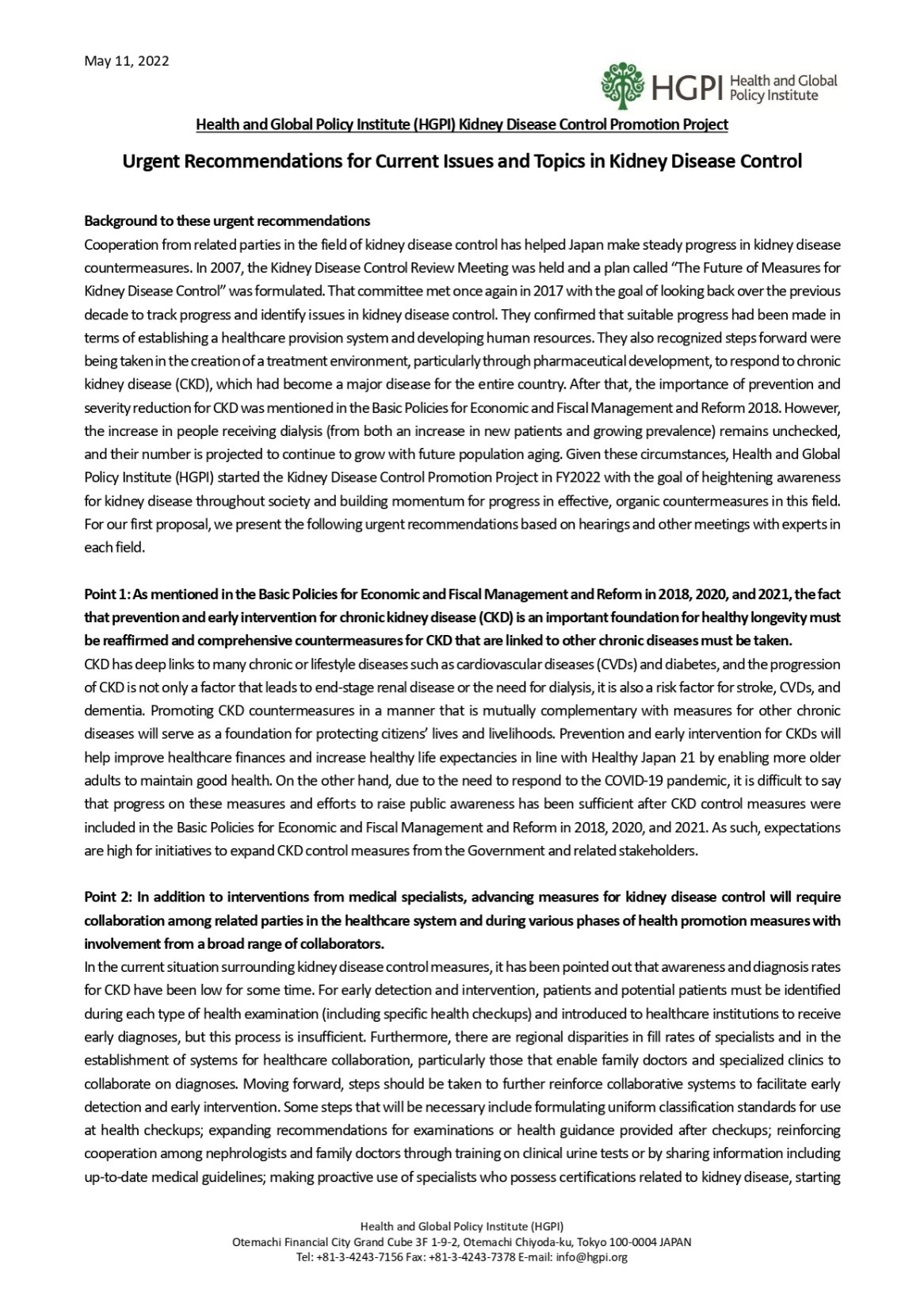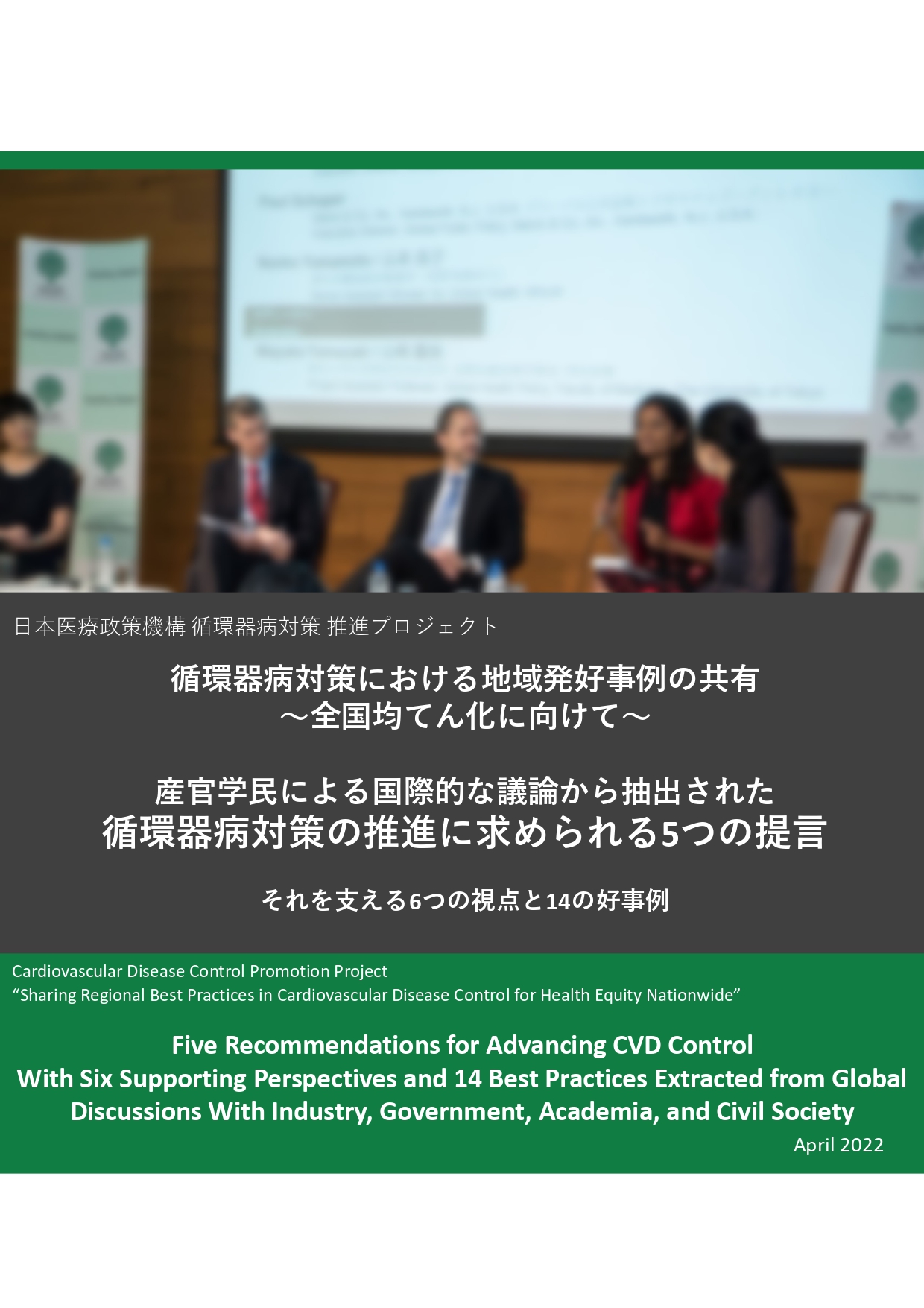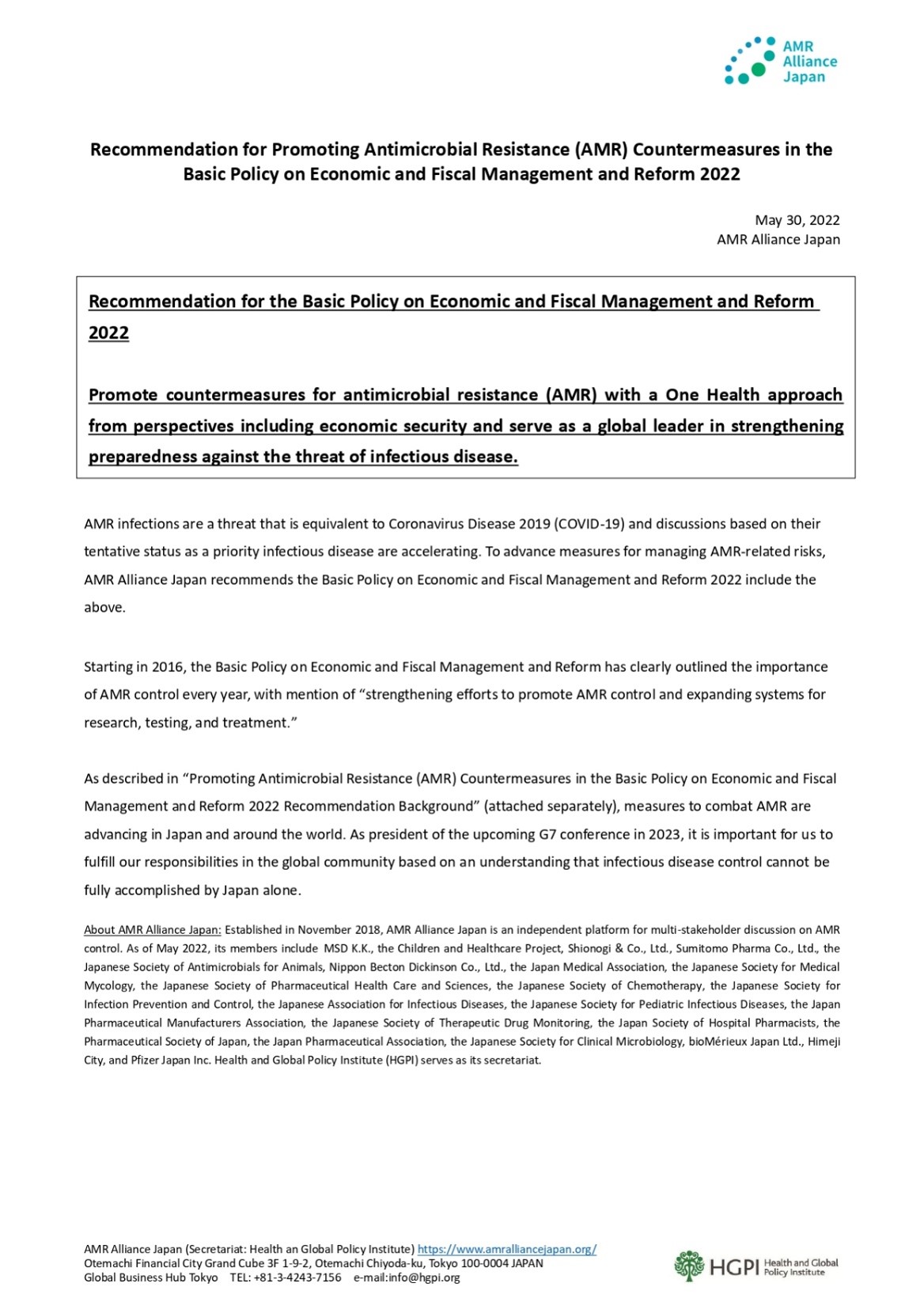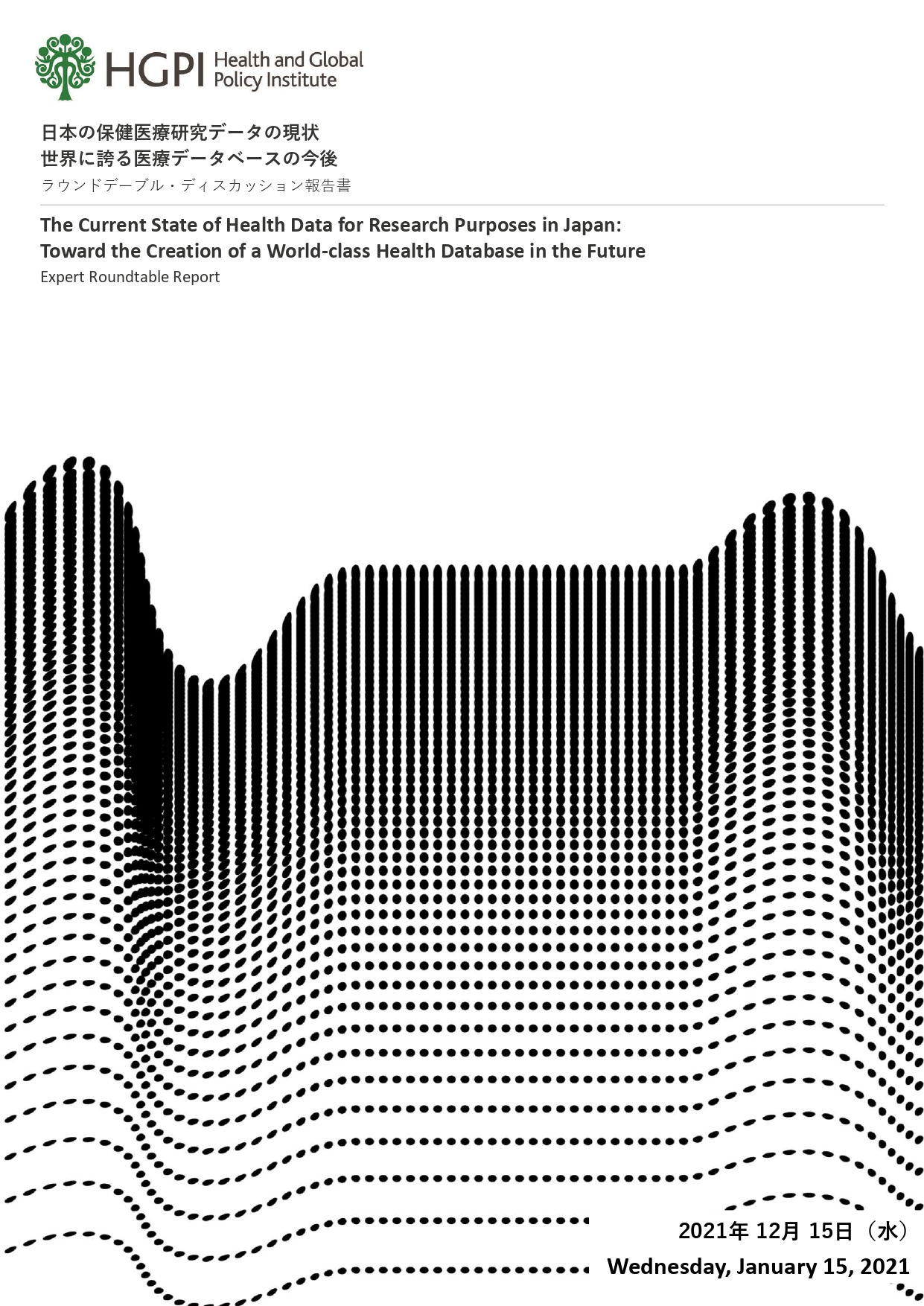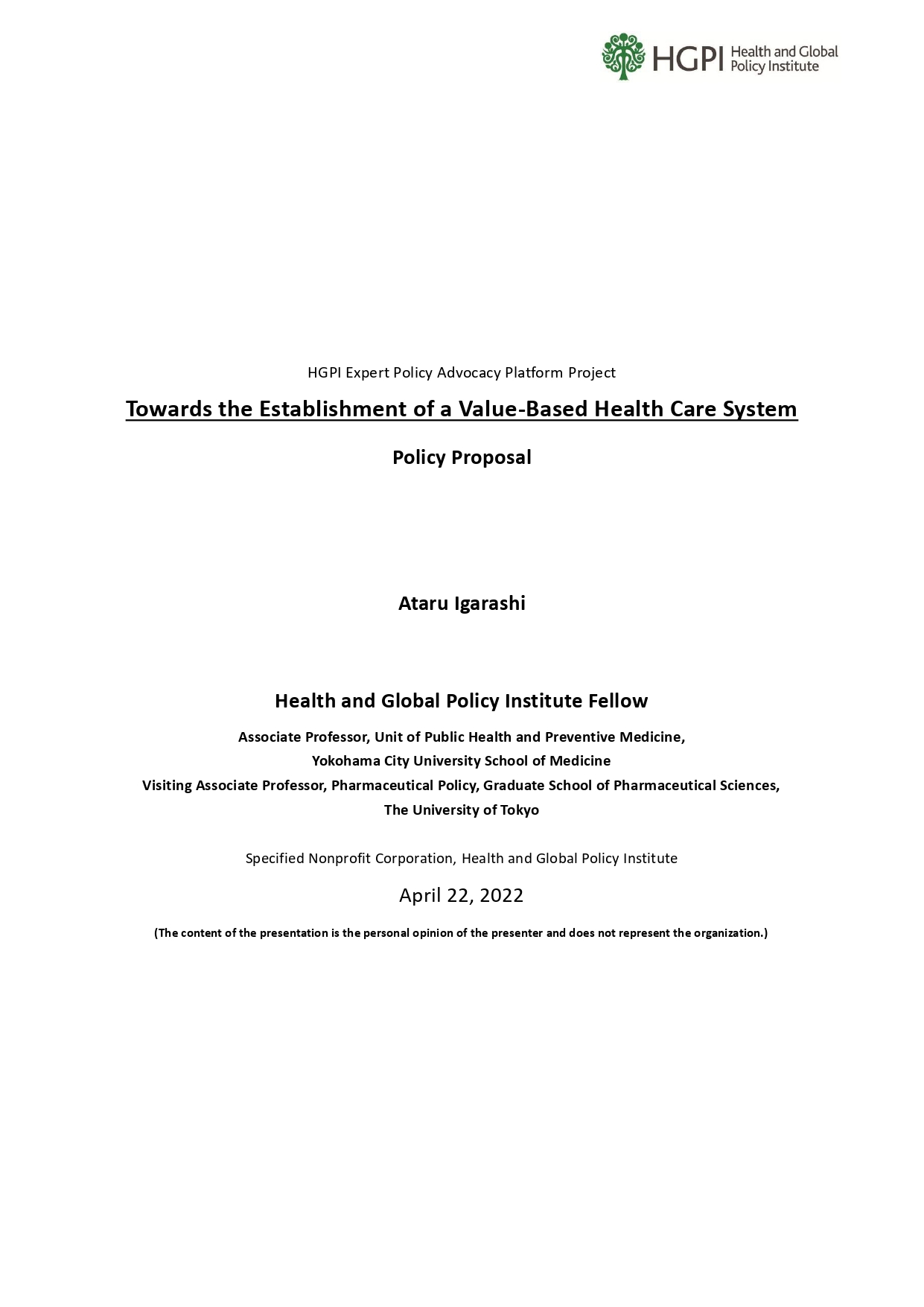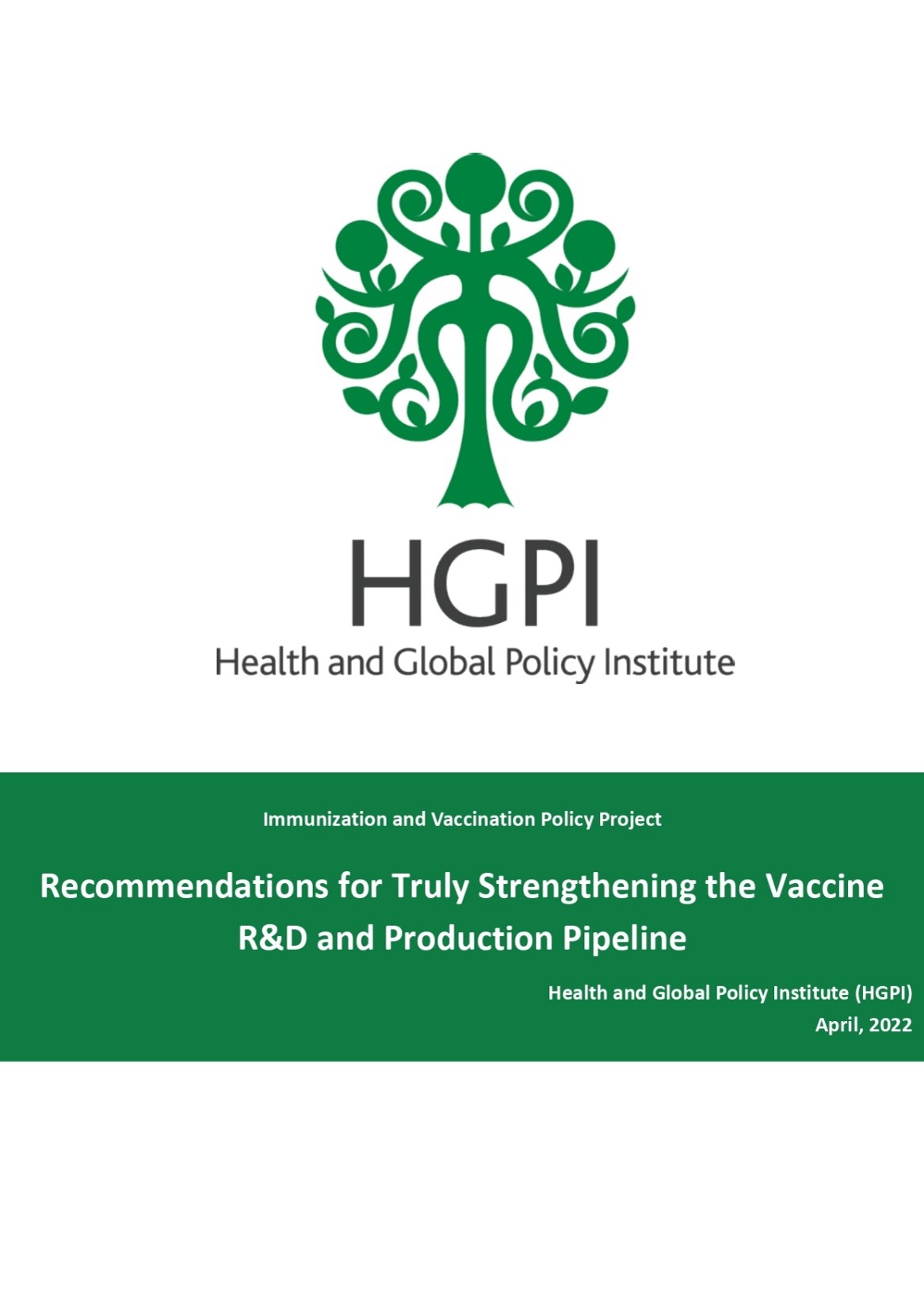Current Activities (October ― December 2022)
CONTENTS
- About Health and Global Policy Institute (HGPI)
- Top Global Health Policy Think Tanks 2020
- AMR: Antimicrobial Resistance
- Mental Health
- Dementia
- Future of the Healthcare System
- Global Health
- Planetary Health
- Health Policy Academy
- HGPI Seminar
- Lectures and Media Coverage
- Advocacy Activities to Encourage the Adoption of the Recommendations in Our Policy Proposals
- Providing Professional Expertise
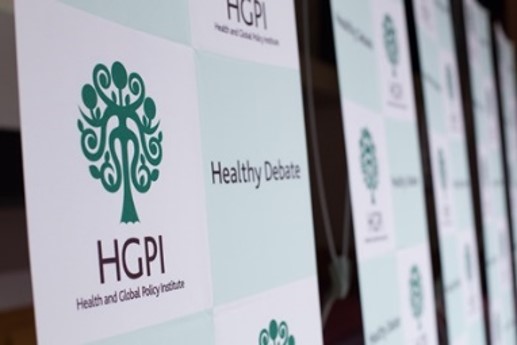
About Health and Global Policy Institute (HGPI)
Non-profit, Independent, and Global
Health and Global Policy Institute (HGPI) is a Tokyo-based independent and non-profit health policy think tank, established in 2004.
Since establishment, HGPI has pursued its mission of “Achieving citizen-centered health policies by bringing broad stakeholders together in its capacity as an independent think-tank to generate policy options for the public.” One of the Institute’s guiding principles in activities for this mission is to hold fast to its independence without adhering to the interests of any political party or organization. HGPI will continue to maintain political neutrality and independence from any organization in conducting its activities.
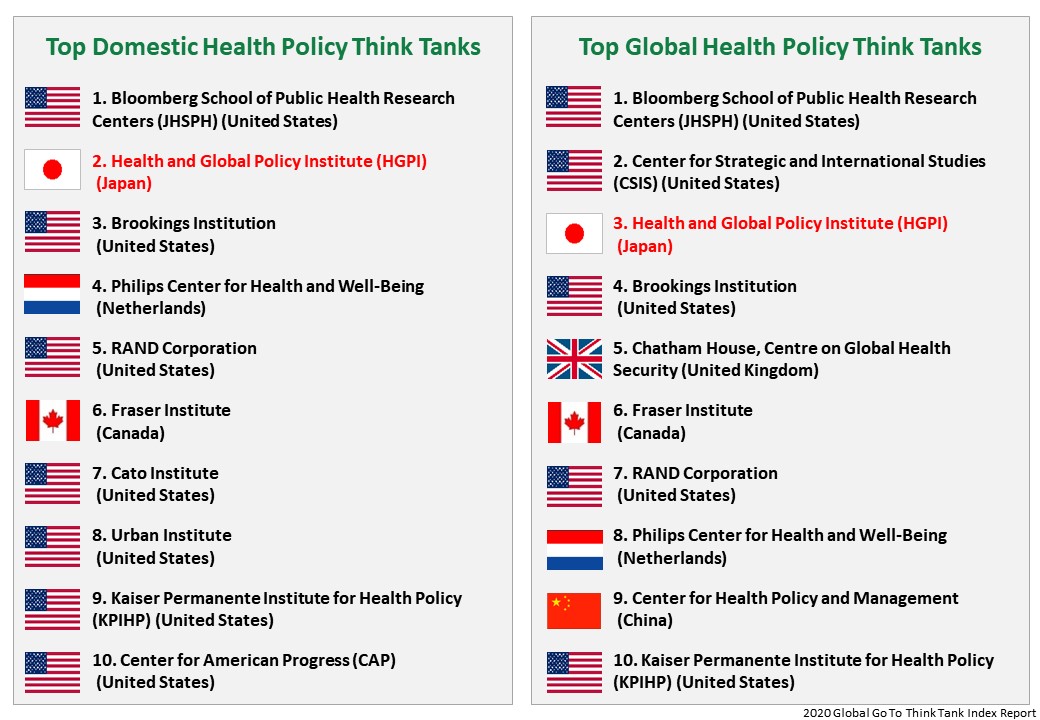
Top Global Health Policy Think Tanks 2020
Ranked Third in the World Among Global Health Policy Think Tanks
HGPI was ranked third among global health policy think tanks worldwide in University of Pennsylvania’s 2020 Global Go To Think Tank Index Report, published in January 2021. HGPI has been included in the ranking for twelve consecutive years, placing it among leading policy organizations.
“HGPI’s ranking is the result of its independence, the diversity of its funding sources, and its commitment to working globally by publishing all of its work in both English and Japanese. Encouraged by these results, we will double our efforts to continue to have a positive impact on society as a think tank specializing in health policy.” –HGPI Chairman Kiyoshi Kurokawa
“Especially during the pandemic, our work to advocate for citizens, patients, and healthcare workers is of the utmost importance. Now, more than ever, the world needs open and fair discussions on health policy. We will continue to foster such discussions, toward the creation of better policy ideas developed out of the combined knowledge of diverse stakeholders from the public and private sectors.” –HGPI CEO and Board Member Ryoji Noritake
AMR: Antimicrobial Resistance
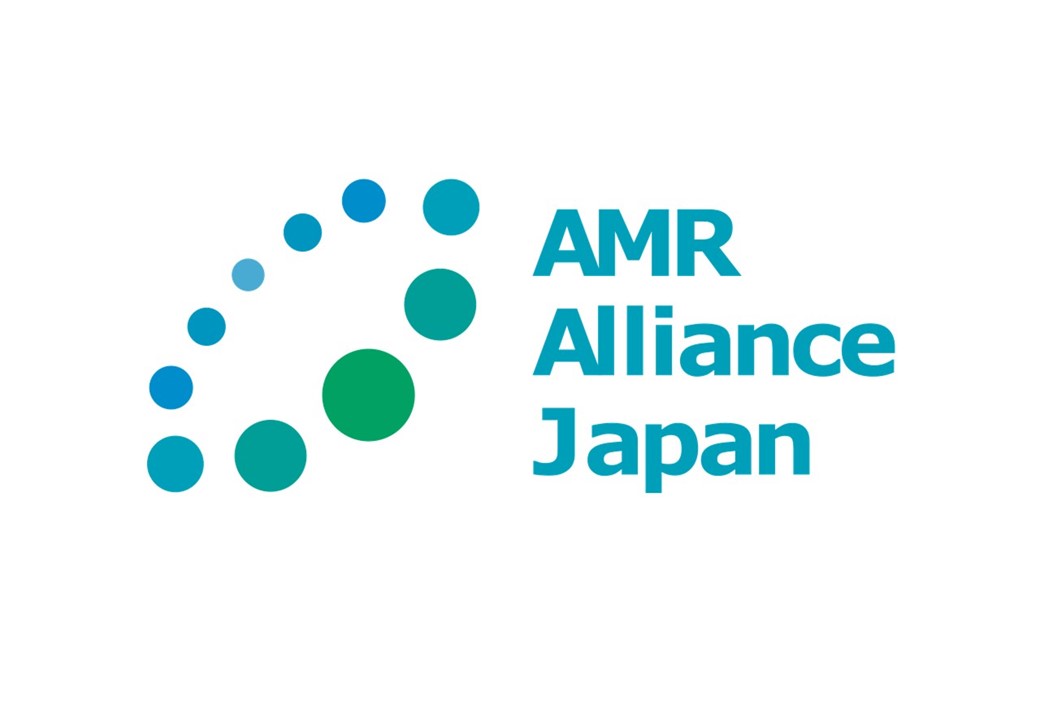
AMR Alliance Japan
Established in November 2018 by academic societies working in infectious disease medicine, pharmaceutical companies, and medical device makers, AMR Alliance Japan is an independent platform for the promotion of multisector discussion on AMR countermeasures. The Alliance develops and disseminates policy recommendations to: (1) ensure that AMR countermeasures are in line with the current situation of patients and healthcare settings; (2) promote the national and international AMR agenda; and (3) advance Japan’s AMR policy.
2022.12.23
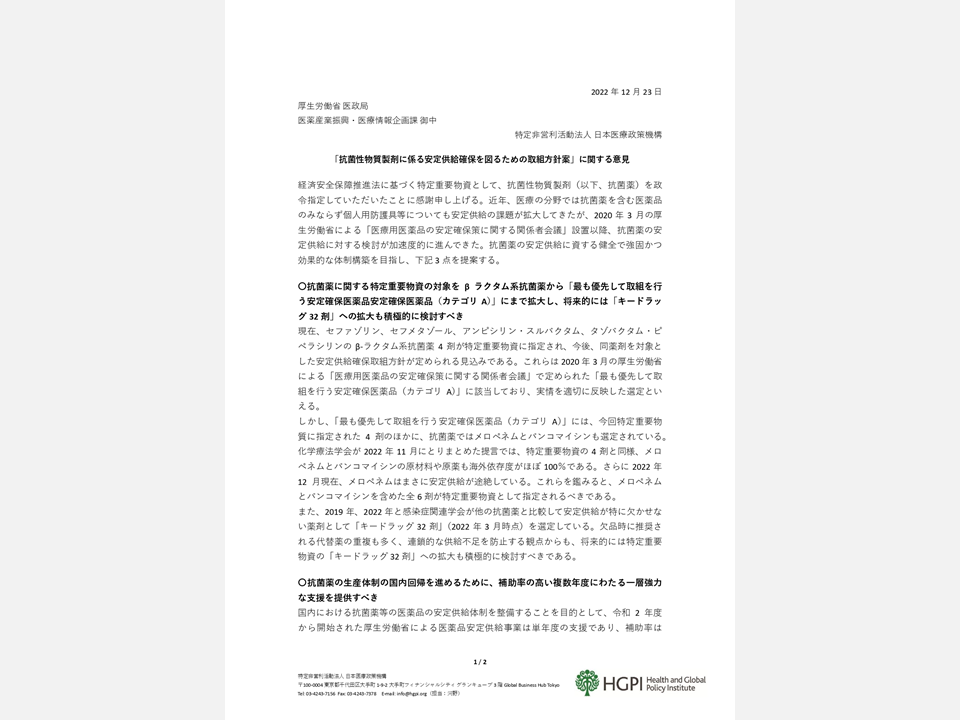
Public Comments Propose
Opinions regarding “Action Policy for Ensuring a Stable Supply of Antimicrobial Substances”
HGPI submitted opinions (public comments) regarding “Action Policy for Ensuring a Stable Supply of Antimicrobial Substances.”
Summary
- Recommendation 1: Antimicrobials that have been designated as “specified critical materials” by the Government of Japan should be expanded from β-lactam antimicrobials to include all those designated as “pharmaceuticals requiring the highest priority in efforts to ensure stable supplies (category A),” and steps should be taken to consider further expanding that list to include the “32 Key Drugs” in the future.
- Recommendation 2: Support for revitalizing the domestic antimicrobial production system should be reinforced by providing higher subsidy rates over multiple years.
- Recommendation 3: In light of the structural challenges of the antimicrobial market, steps should be taken during non-emergency periods to ensure market feasibility and profitability for antimicrobials by introducing pull incentives and similar measures.
2022.12.19
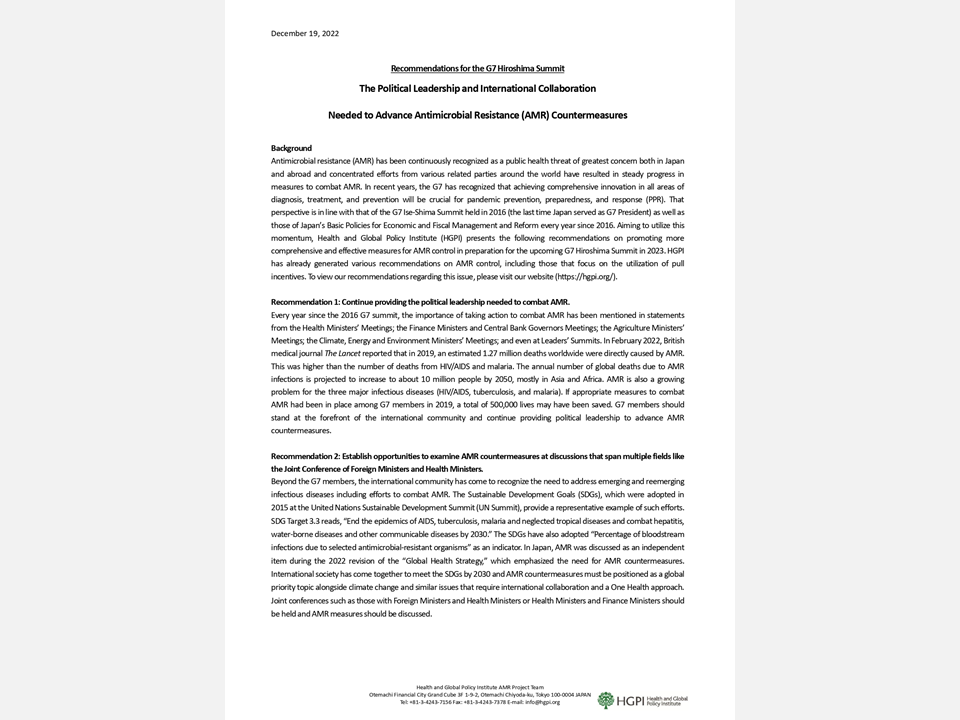 Recommendations
Recommendations
The Political Leadership and International Collaboration Needed to Advance Antimicrobial Resistance (AMR) Countermeasures
HGPI released recommendations for the G7 Hiroshima Summit which is scheduled to be held in May 19-21, 2023.
Summary
- Recommendation 1: Continue providing the political leadership needed to combat AMR.
- Recommendation 2: Establish opportunities to examine AMR countermeasures at discussions that span multiple fields like the Joint Conference of Foreign Ministers and Health Ministers.
2022.12.13
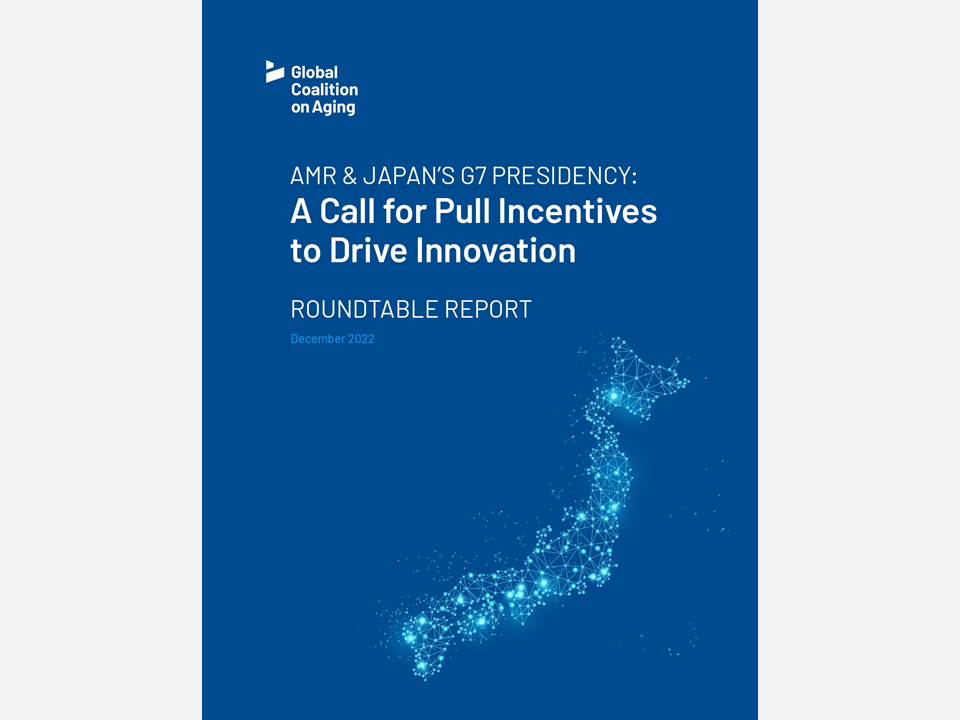 Roundtable Report
Roundtable Report
AMR & JAPAN’S G7 PRESIDENCY: A Call for Pull Incentives to Drive Innovation
The Global Coalition on Aging (GCOA) released a report regarding AMR countermeasures in preparation of the 2023 G7 Hiroshima summit. This report is based on discussions from an online roundtable held in September 2022. The roundtable brought together public health, economic, and policy experts from Japan, the United Kingdom, the United States, and Sweden, with Ms. Yui Kohno, a manager at HGPI, as a speaker.
Summary
- Implement a pilot pull incentive to stimulate antibiotic innovation based on best-fit model for Japan.
- Build policy guidance on AMR into the Health and Finance Ministers’ meetings and communiques.
- Communicate the urgency for AMR policy action through Japan’s G7 Presidency at the Summit level.
- Invite collaboration and partnership with other countries, both those already leading on AMR action and those seeking inspiration and guidance.
2022.11.18
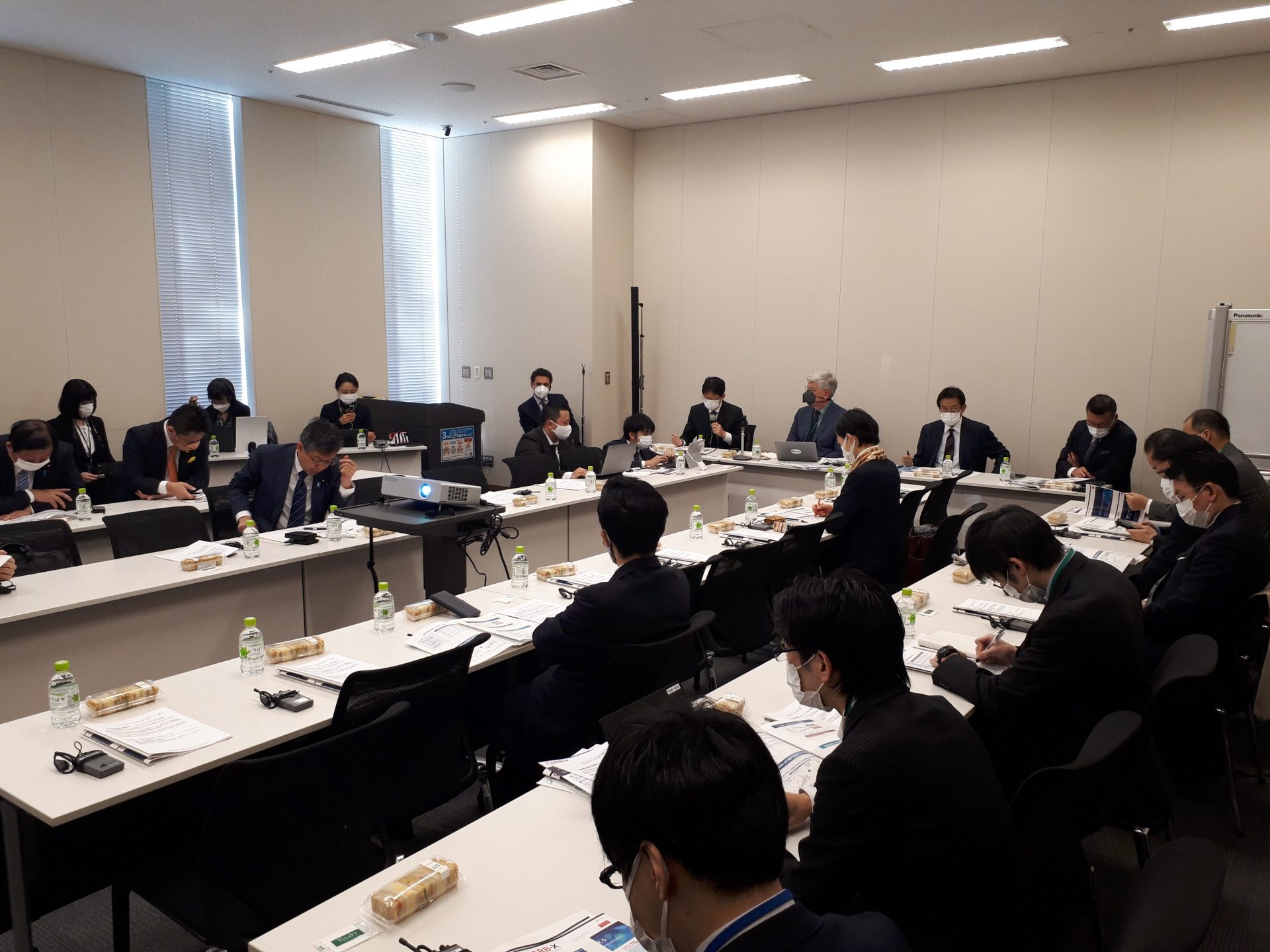
Diet Member study session
Urgent Topics in Antimicrobial Resistance: Understanding the Threat of a Silent Pandemic
HGPI and the Global Leaders Group on Antimicrobial Resistance, which was established by the World Health Organization (WHO) and its partners, co-hosted a study session for members of the Diet. It featured lectures from Dr. Norio Ohmagari (Director, AMR Clinical Reference Center, National Center for Global Health and Medicine (NCGM)) and Prof. Kevin Outterson (Professor, Boston University; Executive Director, CARB-X). They explained the urgency of AMR as well as the latest national and international trends.
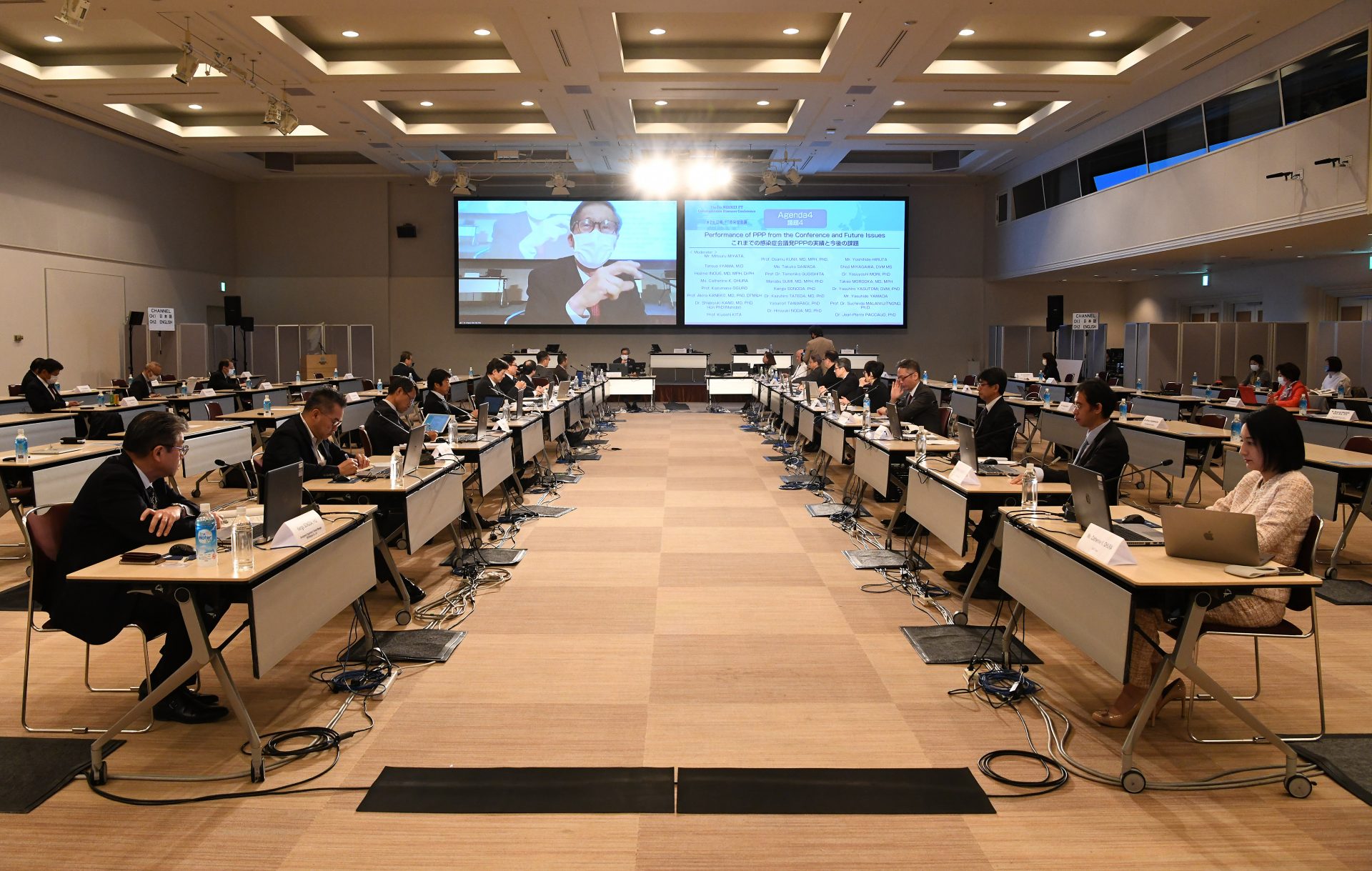
The AMR Consortium of the Nikkei FT Communicable Diseases Conference Asia Africa Medical Innovation Consortium (AMIC)
The Asia Africa Medical Innovation Consortium (AMIC) was jointly hosted by Nikkei Inc. and AMR Alliance Japan. The two basic pillars of the AMIC AMR, “Considering Specific Pull Incentives and Measures” and “Promoting Understanding of AMR Among Healthcare Professionals and the General Public,” were discussed by working groups.
2022.11.16
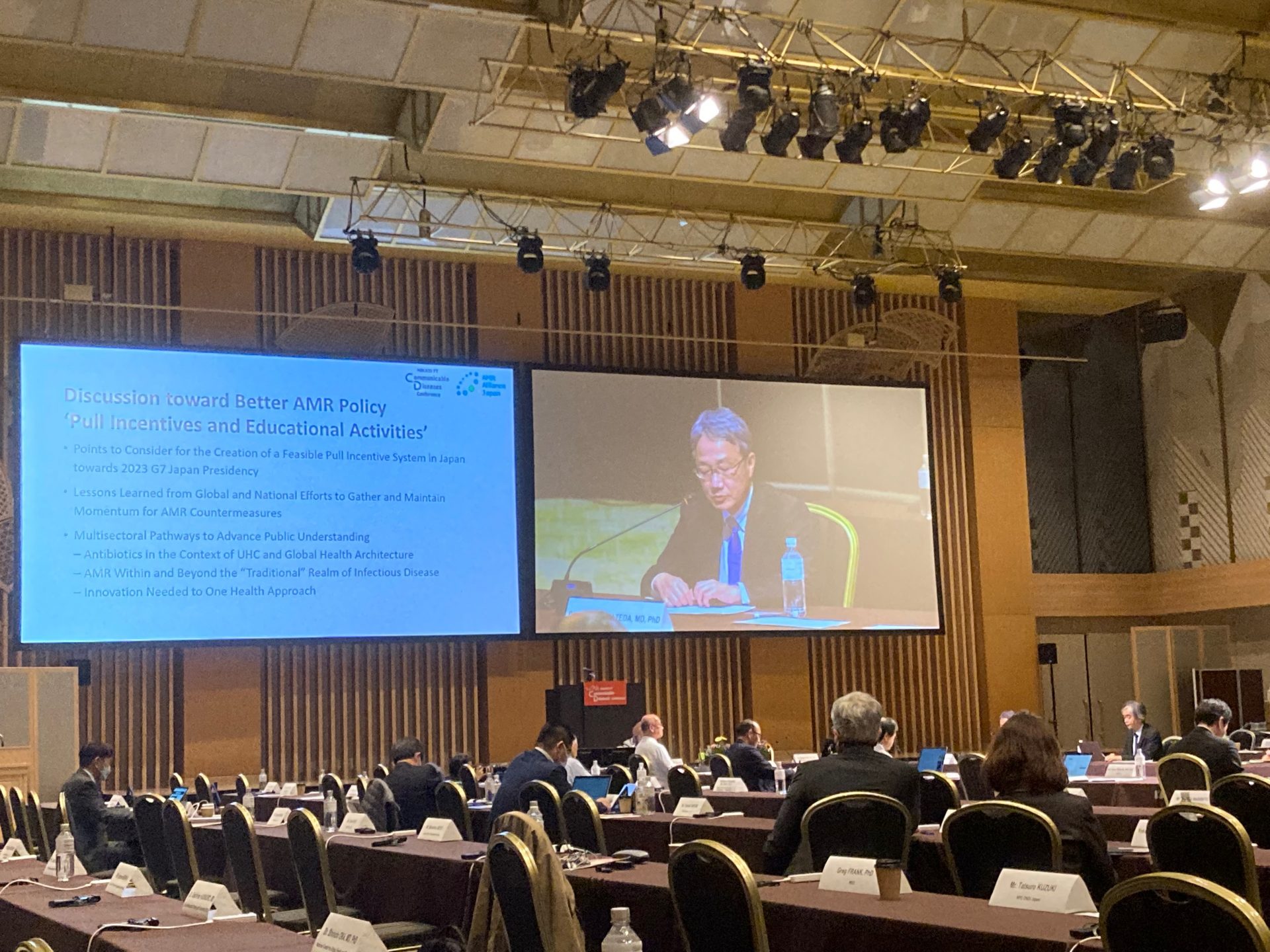
The 9th Nikkei FT Communicable Diseases Conference
The AMR Consortium of the Nikkei FT Communicable Diseases Conference Asia Africa Medical Innovation Consortium (AMIC)
was jointly hosted by Nikkei Inc. and AMR Alliance Japan. AMIC discussed future AMR countermeasures during the 9th NIKKEI FT Communicable Diseases Conference, organized by Nikkei INC. and co-sponsored by Financial Times.
Mental Health
2022.12.20
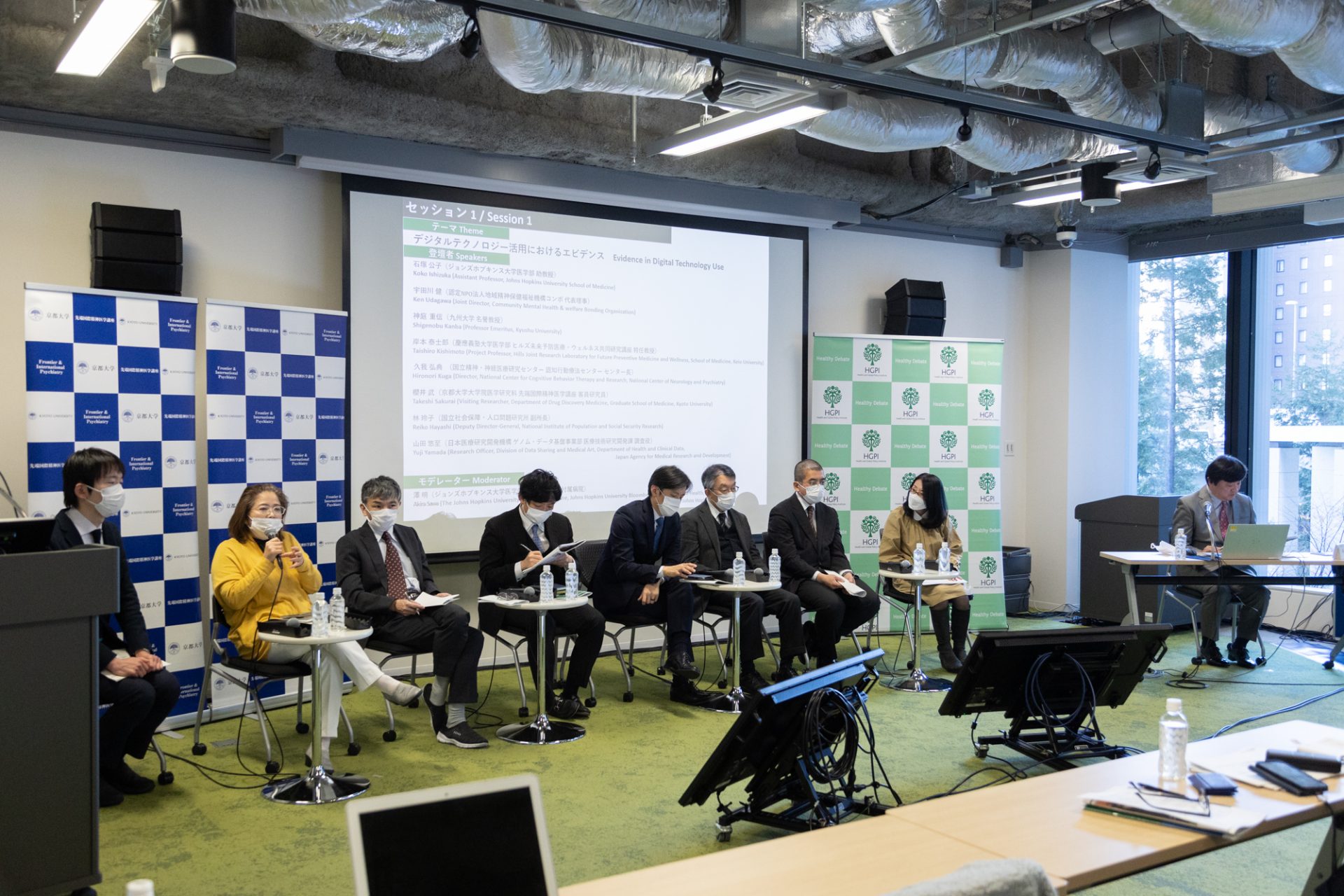
The Global Expert Meeting
Setting a Direction for Promoting Effective Digital Technology Utilization From the Perspectives of Those Most Affected
This global expert meeting is co-hosted by the Frontier & International Psychiatry Laboratory of the Kyoto University Graduate School of Medicine and HGPI with the cooperation from Johns Hopkins University. The focus of this global expert meeting was to examine how to best utilize digital technology, a topic which has attracted growing expectations in the field of mental health policy. We brought together prominent members of the academic community and opinion leaders from Japan and abroad representing industry, Government, academia, and civil society to discuss issues and future prospects for this topic under the three themes of “evidence,” “accessibility,” and “data.”
Participants
- John B. Torous(Assistant Professor of Psychiatry, Beth Israel Deaconess Medical Center)
- Matcheri S. Keshavan(Stanley Cobb Professor of Psychiatry, Beth Israel Deaconess Medical Center)
- Koko Ishizuka (Assistant Professor, Johns Hopkins University School of Medicine)
Ken Udagawa (Joint Director, Community Mental Health & Welfare Bonding Organization)
Shigenobu Kanba (Professor Emeritus, Kyushu University)
Taishiro Kishimoto (Project Professor, Hills Joint Research Laboratory for Future Preventive Medicine and Wellness, School of Medicine, Keio University)
Hironori Kuga (Director, National Center for Cognitive Behavior Therapy and Research, National Center of Neurology and Psychiatry)
Takeshi Sakurai (Visiting Researcher, Department of Drug Discovery Medicine, Graduate School of Medicine, Kyoto University)
Reiko Hayashi (Deputy Director-General, National Institute of Population and Social Security Research)
Yuji Yamada (Research Officer, Division of Data Sharing and Medical Art, Department of Health and Clinical Data, Japan Agency for Medical Research and Development)- Akira Sawa (The Johns Hopkins University School of Medicine, Johns Hopkins University Bloomberg School of Public Health, The Johns Hopkins Hospital)
- Hanako Jimi (Member, House of Councillors; Parliamentary Secretary, Cabinet Office)
- Shuichiro Hayashi (Director, Mental Health and Disability Health Division Department of Health and Welfare for Persons with Disabilities Social Welfare and War Victims’ Relief Bureau Ministry of Health, Labour and Welfare)
- Taisuke Hashimoto (Director, Healthcare Industries Division, Commerce and Service Industry Policy Group, Ministry of Economy, Trade and Industry (METI))
- Kensuke Kaneko (Representative Executive Vice-President, KANEKOSHOBO)
Osamu Kobori (Supervisor, HIKARI Lab Inc.)
Shingo Hayashi (Representative and Administrator, Community Site for People with Depression and Their Families encourage)
Toshiaki A. Furukawa (Professor, Department of Health Promotion and Human Behavior, Health Issues Course, Graduate School of Medicine and Faculty of Medicine, Kyoto University)
Nobuhiro Miura (Member, House of Councillors)- Genko Oyama (Associate Professor, Department of Neurology, School of Medicine, Juntendo University)
Akiko Kudo (Senior Vice President, Executive Manager, New Business Promotion Department, Nippon Telegraph and Telephone (NTT) Corporation)
Keigo Kobayashi (Person Living With a Mental Disorder)
Tatsunobu Shibata (Professor, Human Genome Center, Institute of Medical Science, University of Tokyo; Director, Division of Cancer Genomics, National Cancer Center Research Institute)
Kazuyuki Nakagome (Director-General, National Center of Neurology and Psychiatry)
Mami Ho (Specialist in Clinical Medicine, Office of Medical Devices I, Pharmaceuticals and Medical Devices Agency)
2022.10.14
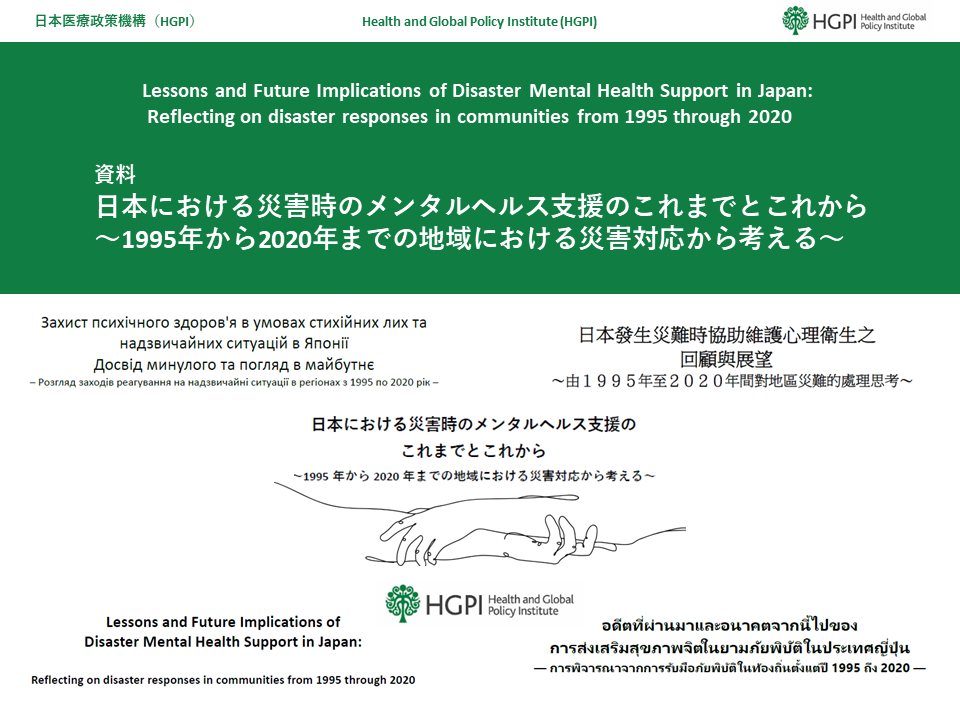
Disaster Mental Health Policy Project Release Translations – English, Traditional Chinese, Thai, and Ukrainian
Lessons and Future Implications of Disaster Mental Health Support in Japan: Reflecting on Disaster Responses in Communities From 1995 Through 2020
The report reconstructs findings from “Examples of and Recommendations for the Creation of Municipal Mental Health and Medical Welfare Systems for Medium- to Long-term Post-Disaster Response,” which was presented as part of the FY2021 Ministry of Health, Labour and Welfare Project for the Promotion of Comprehensive Welfare for Persons with Disabilities. This project has reconstructed those findings with a focus on conditions and changes in disaster response in Japan with the goal of sharing real-world examples prepared for municipal governments among a greater number of citizens. In addition to providing an English translation, to help disseminate Japan’s disaster response methods on a global level, the project also produced translations in Chinese, Thai, and Ukrainian to better reach areas that have experienced disasters similar in scale or in nature to those that have occurred in Japan.
The experiences Japan has accumulated in mounting responses to all forms of disaster are highly valuable. We strongly hope this report provides one form of assistance in helping the world come together to overcome the overwhelming phenomena that are disasters by sharing Japan’s experiences with global society.
2022.10.10
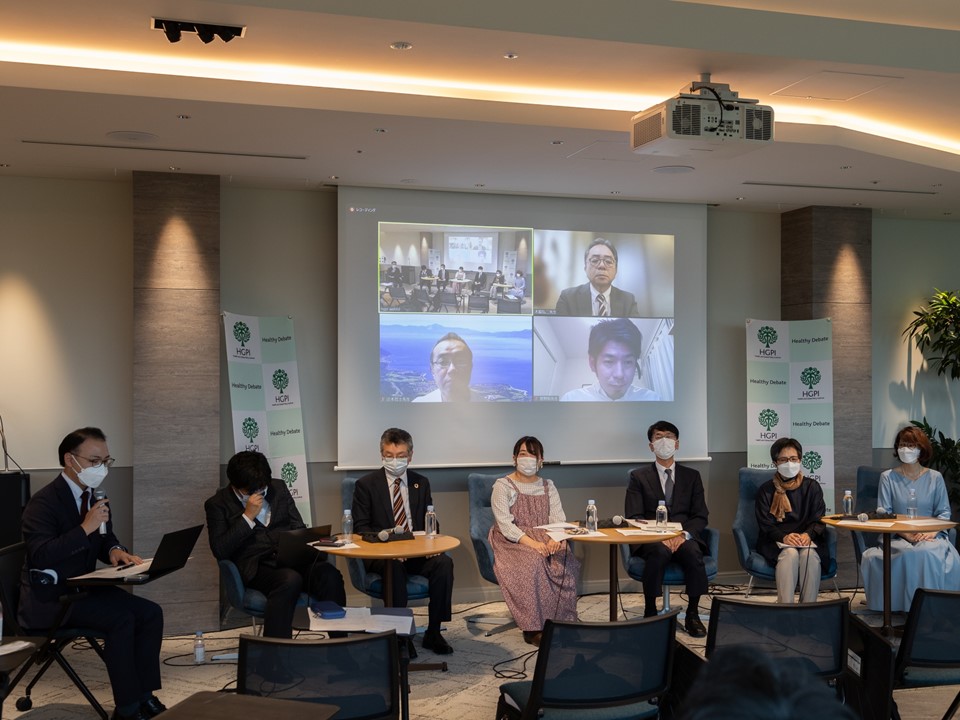
Public Symposium
Mental Health Support in Times of Disaster – The Ideal Form of Supporter Collaboration From Emergency Response to Continuous Response
This symposium examined the transitions between disaster phases and focused on challenges for collaboration during the transition from the emergency phase to the phases for recovery and reconstruction. It featured keynote lectures, a relay talk, and a panel discussion with all speakers that emphasized the viewpoints of community members and mental health professionals for the themes listed below.
– How to face the diverse range of issues unique to disaster mental health
– How to best match diverse forms of support to diverse needs
– How to smoothly transition from emergency response to support for daily living
Participants
- Nahoko Harada (Professor, Department of Nursing Science Graduate School of Interdisciplinary Science and Engineering in Health Systems Department of Fundamental Nursing School of Nursing, Faculty of Health Sciences)
- Tetsushi Tsujimoto (Chairman, Japanese Association of National Mental Health and Welfare Center Directors)
- Koji Kiwaki (Member, Japanese Association of Public Health Center Directors; Director, Yatsushiro Public Health Center, Kumamoto Prefecture)
- Akiko Shimoda (Representative of Psychological Service Office Greenfield)
- Hiroshi Suita (Head, Japan CSR, Global CSR & Partnership Strategy, Global Corporate Affairs, Takeda Pharmaceutical Company Limited)
- Taku Sugano (Associate Professor, Graduate School of Literature and Human Sciences Human Behavioral Sciences Course, Osaka Metropolitan University)
- Shizuku Sudou (The Kumamoto Association of the Developmental Disabled Little bit)
- Tetsuya Myojo (Executive Director, Japan Voluntary Organizations Active in Disaster)
- Yuhei Yamada (Porque, the Organization of Persons with Psychosocial Disabilities)
2022.10.03
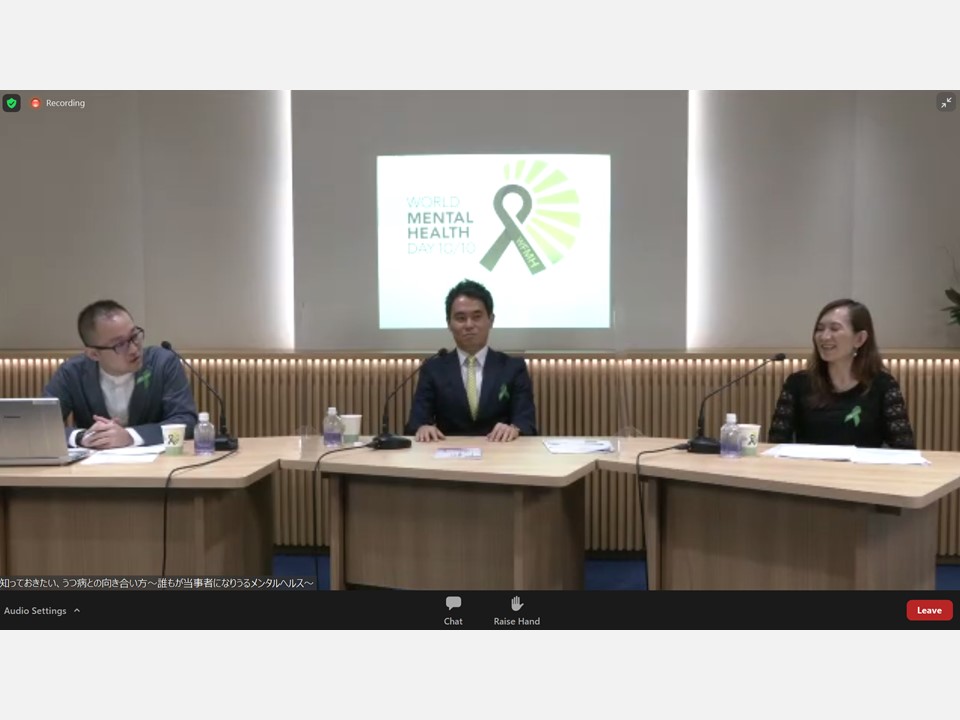
A Free Online Seminar for World Mental Health Day
What to Know for Depression – How to Respond to a Mental Health Concern that Can Affect Anyone
Leading up to World Mental Health Day, a day for raising global awareness toward mental health and eliminating prejudice toward mental illness that is observed on October 10, HGPI jointly hosted a seminar. The objective of World Mental Health Day is to raise awareness of mental health issues and to mobilize efforts to support mental health. In 1992, a non-profit organization called World Federation for Mental Health (WFMH) designated October 10 as World Mental Health Day. This later gained support from the World Health Organization (WHO) and it was officially recognized as an international day. Today, events to raise awareness for mental health using the WFMH World Mental Health Day logo are held around the world.
Participants
- Dr. Takashi Tsuboi (Associate Professor, Laboratory of Psychiatry, Faculty of Medicine, Kyorin University)
- Ms. Yuma (Representative, The ReOPA Self-Help Group)
Dementia
2022.11.24
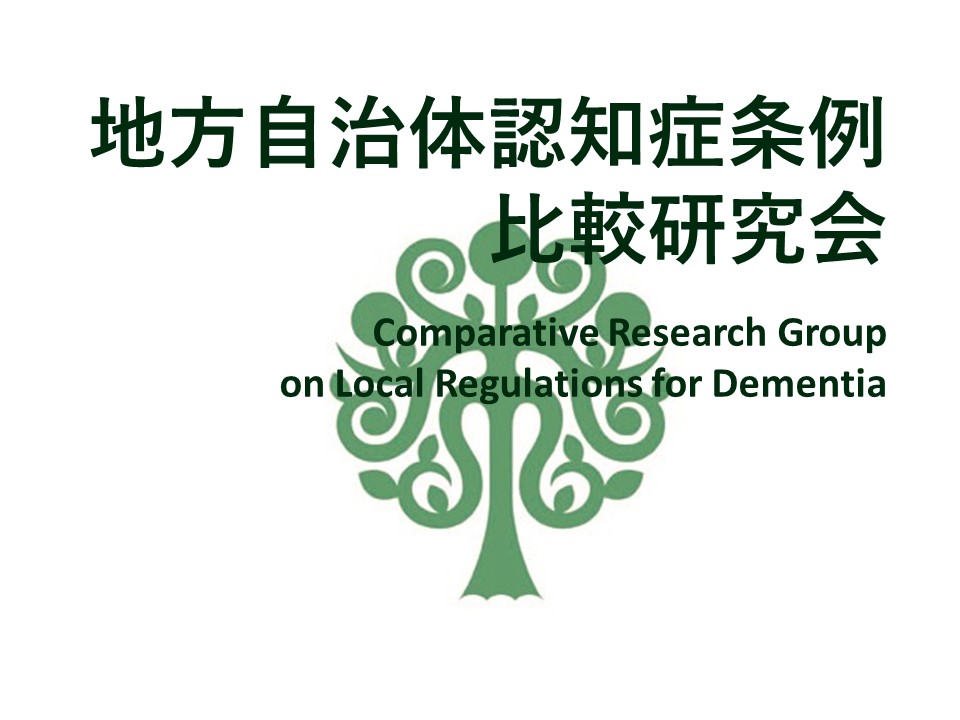
The 11th Meeting of the Comparative Research Group on Local Regulations for Dementia
Achieving Better Coexistence with Dementia in the Future
This symposium gathered multi-stakeholders including related healthcare and long-term care professionals, academia, The group was formed with the goal of achieving better coexistence with dementia in the future by comparing existing local regulations related to dementia, to examine the content of those regulations, and to consider the ideal procedures for formulating regulations related to dementia.
Research group members
- Soichi Kosuga (Photojournalist)
Shinpei Saruwatari (Steering Committee Member, Designing for Dementia; Promoter for Consultation Support Integration, Omuta City Hall; Director, Shirakawa Hospital Comprehensive Community Health Office)
Takehito Tokuda (Steering Committee Member, Designing for Dementia; Board member, NPO Dementia Friendship Club)
Masaaki Hirai (Representative, Mahoroba Club)
Takashi Mihara (Senior Researcher, Insurance Research Department, NLI Research Institute)Observers
- Yoko Ushio (Member, Higashihiroshima City Council)
Tetsu Saito (Member, Urayasu City Council)
Steering Committee, Designing for Dementia
2022.11.15
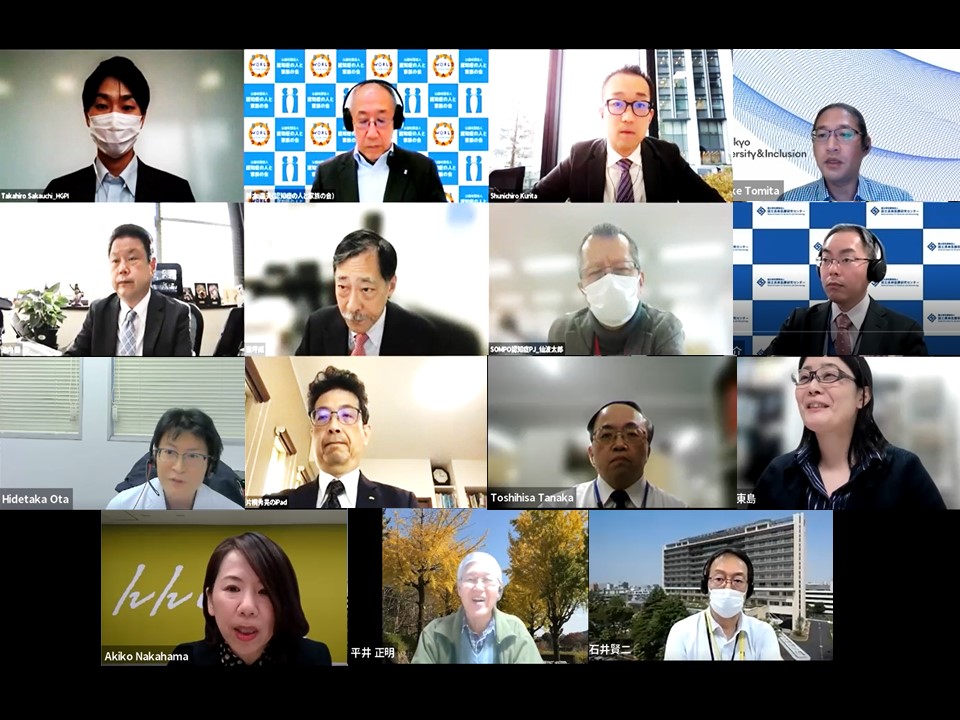
The Second Roundtable Discussion
Building an R&D System Together with People Living With Dementia and Their Families
– Driving Parallel Progress on an Inclusive Society and in R&D
Based on the discussion held at our first roundtable, the discussion at this session focused on promoting participation and collaboration from people living with dementia and their families in various areas and phases of R&D, from healthcare and long-term care to product and service development. We also examined discussion points related to introducing the results of R&D in society and building a foundation for participation and collaboration from people living with dementia and their families.
Roundtable discussion members
- Takeshi Ikeuchi (Professor, Center for Bioresource-based Researches, Brain Research Institute, Niigata University)
Kenji Ishii (Team Leader, Research Team for Neuroimaging, Tokyo Metropolitan Institute of Gerontology)
Takeshi Iwatsubo (Professor, Department of Basic Neuroscience, Department of Neurology, Graduate School of Medicine, The University of Tokyo; Director, Unit for Early and Exploratory Clinical Development, The University of Tokyo Hospital)
Hidetaka Ota (Professor and Director, Advanced Research Center for Geriatric and Gerontology, Akita University (ARGG))
Hideaki Katagiri (Medical Fellow and Lead Physician, Neuroscience & Pain, Medicine Development Unit Japan and Medical Affairs, Eli Lilly Japan K.K.)
Naomi Sakurai (President, Cancer Solutions Co., Ltd.)
Keisuke Suzuki (Director, Innovation Center for Translational Research, National Center for Geriatrics and Gerontology)
Morio Suzuki (Representative Director, Alzheimer’s Association Japan (AAJ))
Taro Semba (Director, Dementia Project Promotion Office, SOMPO Holdings, Inc.)
Toshihisa Tanaka (Professor, Department of Neuromuscular Pathology, Mie University)
TaisukeTomita (Professor, Laboratory of Neuropathology & Neuroscience, Graduate School of Pharmaceutical Sciences, The University of Tokyo)
Akiko Nakahama (Chief Portfolio Officer, Quality Lead, Alzheimer’s Disease Filing and Registration Japan / Asia, Eisai Co., Ltd.)
Jin Higashijima (Associate Professor, Graduate School of Global and Transdisciplinary Studies, Chiba University)
Masaaki Hirai (Representative, Mahoroba Club)
Future of the Healthcare System
2022.12.05
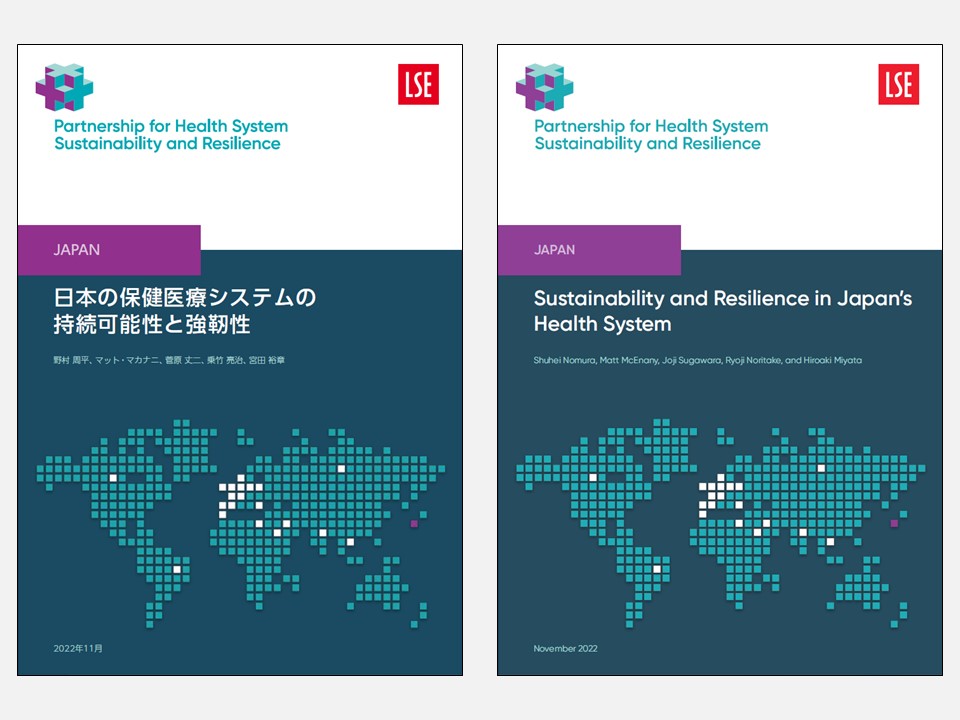
Report
Partnership for Health System Sustainability and Resilience (PHSSR)
As healthcare systems around the world struggle to respond to COVID-19, PHSSR is a collaborative effort that spans national and regional borders to link people like researchers, governments, and policymakers in each country to assess the capacity of health systems to respond to pandemics and similar health crises. After examining health systems in 21 countries, this initiative has compiled the reforms that will be necessary to build more resilient, sustainable health systems.
The first three steps in building and reinforcing healthcare data infrastructure for enhancing the sustainability and resilience of Japan’s healthcare system
- Develop infrastructure to make data collection and analysis more beneficial for healthcare providers and patients.
- Create a new organization to facilitate multi-stakeholder collaboration on data-based policymaking.
- Make effective use of data and reconsider the structure of authority within the healthcare system during times of crisis.
Advisory board (At time of establishment in October 2021)
Domain 1: Governance
Ryozo Nagai (President, Jichi Medical University)
Keizo Takemi (Member, House of Councillors)Domain 2: Health system financing
Kazumasa Oguro (Professor, Faculty of Economics, Hosei University)
Domain 3: Workforce
Yasuhiro Suzuki (Advisor, Ministry of Health, Labour and Welfare)
Ikuko Toyoda (Chair of Connecting Patients and Families to Medical Care, NPO Kakehashi)Domain 4: Medicine and technology
Shinsuke Muto (President, Tetsuyu Institute Medical Corporation; Chair, Integrity Healthcare)
Takuko Sawada (Vice President, Shionogi & Co., Ltd.)Domain 5: Service delivery
Satoko Hotta (Professor, Graduate School of Health Management, Keio University)
Domain 6: Population health and health promotion
Reiko Hayashi (Deputy Director-General, National Institute of Population and Social Security Research)
Domain 7: Environmental sustainability
Masahiro Hashizume (Professor, Department of Global Health Policy, Graduate School of Medicine, The University of Tokyo)
The Media Seminar and Workshop for Promoting Healthcare Reform
Over the course of three meetings, we hosted opinion exchange sessions with experts and media representatives with the objective of helping the public gain a correct understanding of the nature of Japan’s current health and social security systems in light of the digitalization of healthcare in the future.
2022.12.23
The Third
Reexamining Issues and Sharing Opinions on Health Policy in Japan
Presentations
Better Co-Being: A Vision for the Future of Health Systems
Hiroaki Miyata (Professor, Department of Health Policy and Management, School of Medicine, Keio University)
2022.12.23
The Second
Reexamining Issues and Sharing Opinions on Health Policy in Japan
Presentations
The Viewpoints Needed to Envision Health System Reform and the Involvement of DX
Keita Nishiyama (Visiting Professor, Institute for Future Initiative, University of Tokyo)The Future of Japan’s Healthcare System: Transitioning to More Tailor-Made Health Services for More Engagement and Better Health
Shuhei Nomura (Project Associate Professor, Department of Health Policy and Management, School of Medicine, Keio University)
2022.12.23
The First
Understanding Circumstances and Issues in the Domestic Health Sector Today
Presentations
Health in Japan Today and the Potential of Healthcare DX
Shuhei Nomura (Project Associate Professor, Department of Health Policy and Management, School of Medicine, Keio University)Digital care in long-term care in the Netherlands
Jacqueline Hoogendam (Ministry of Health, Welfare and Sport, The Netherlands)
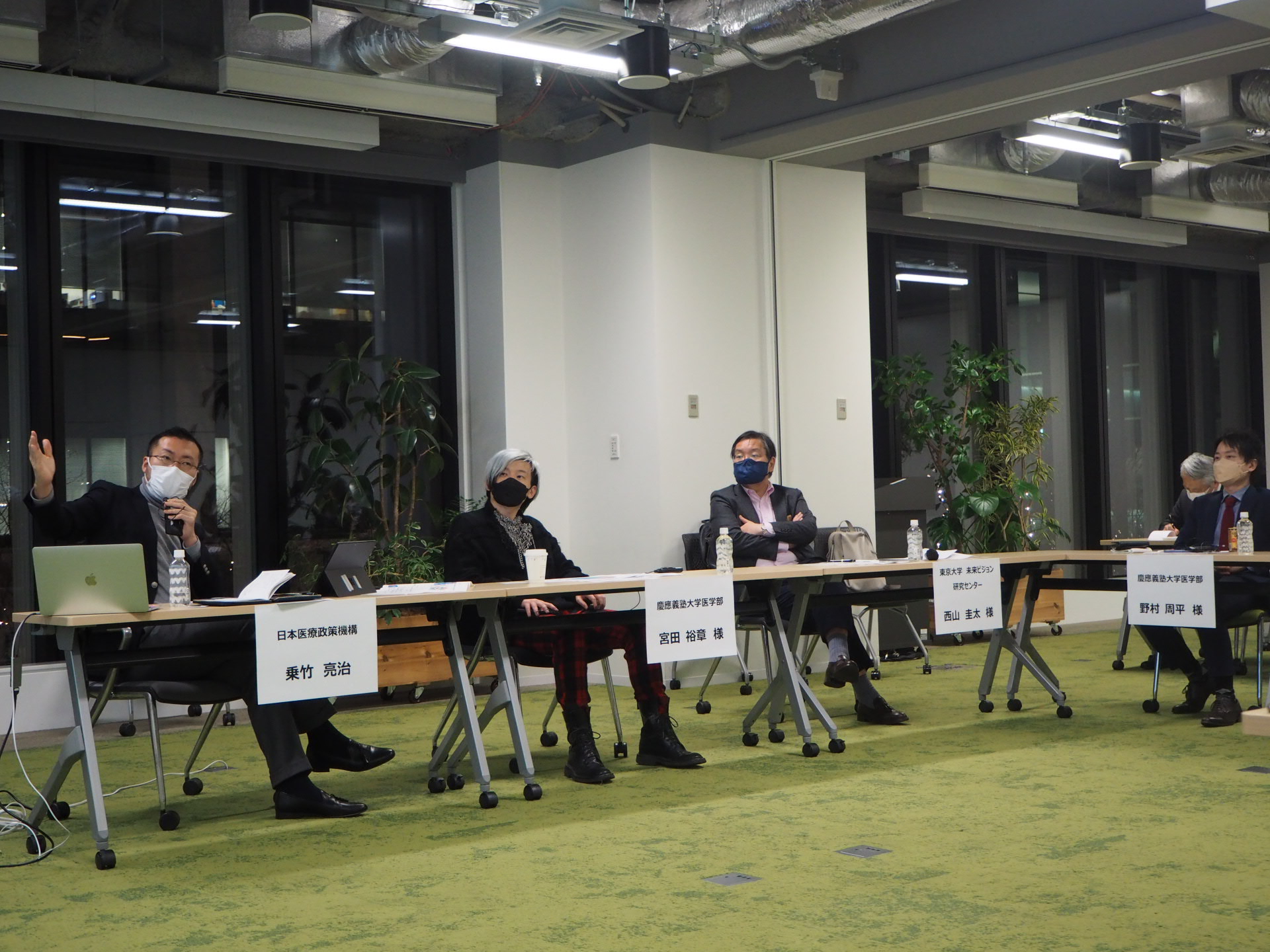
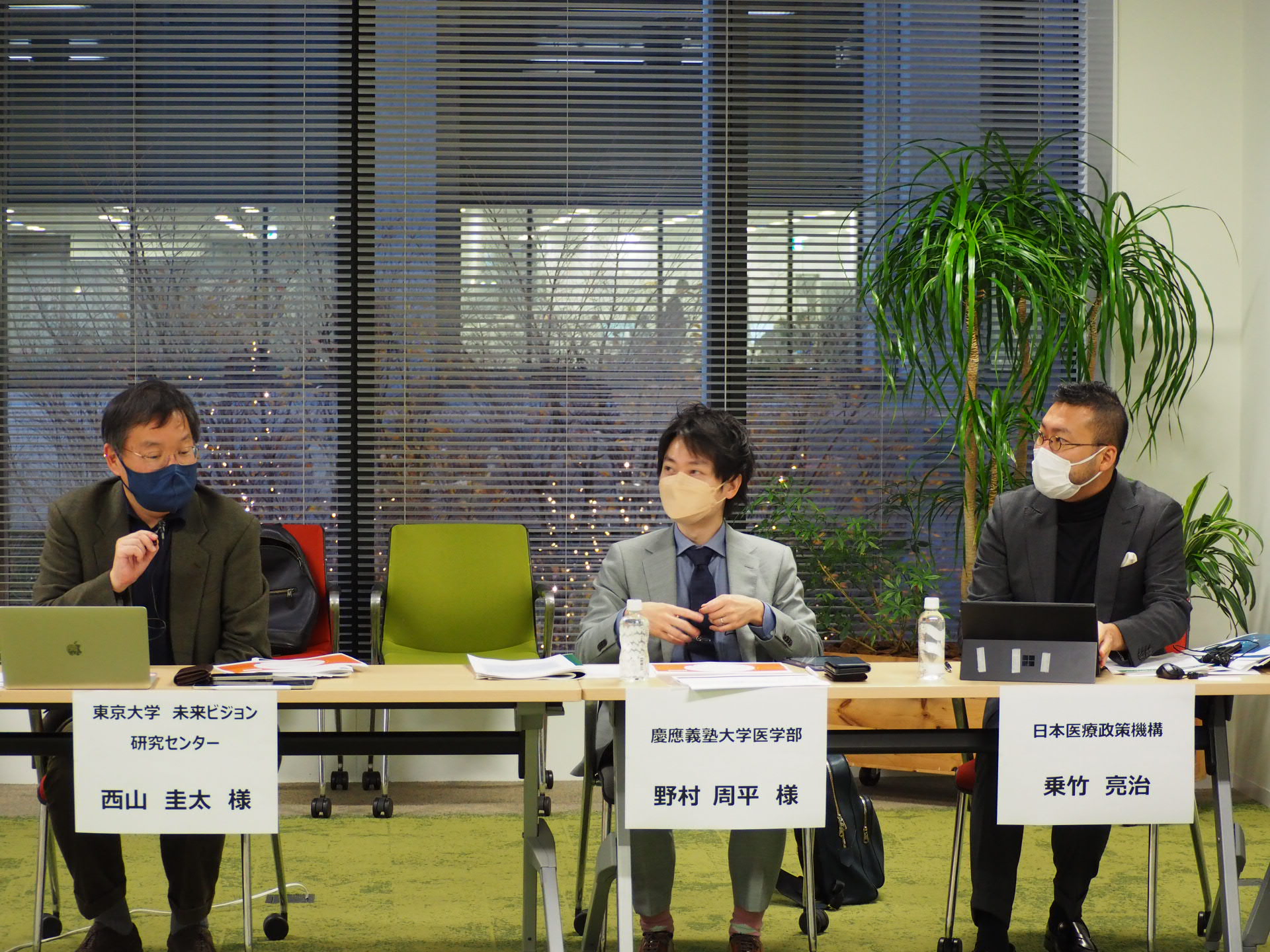
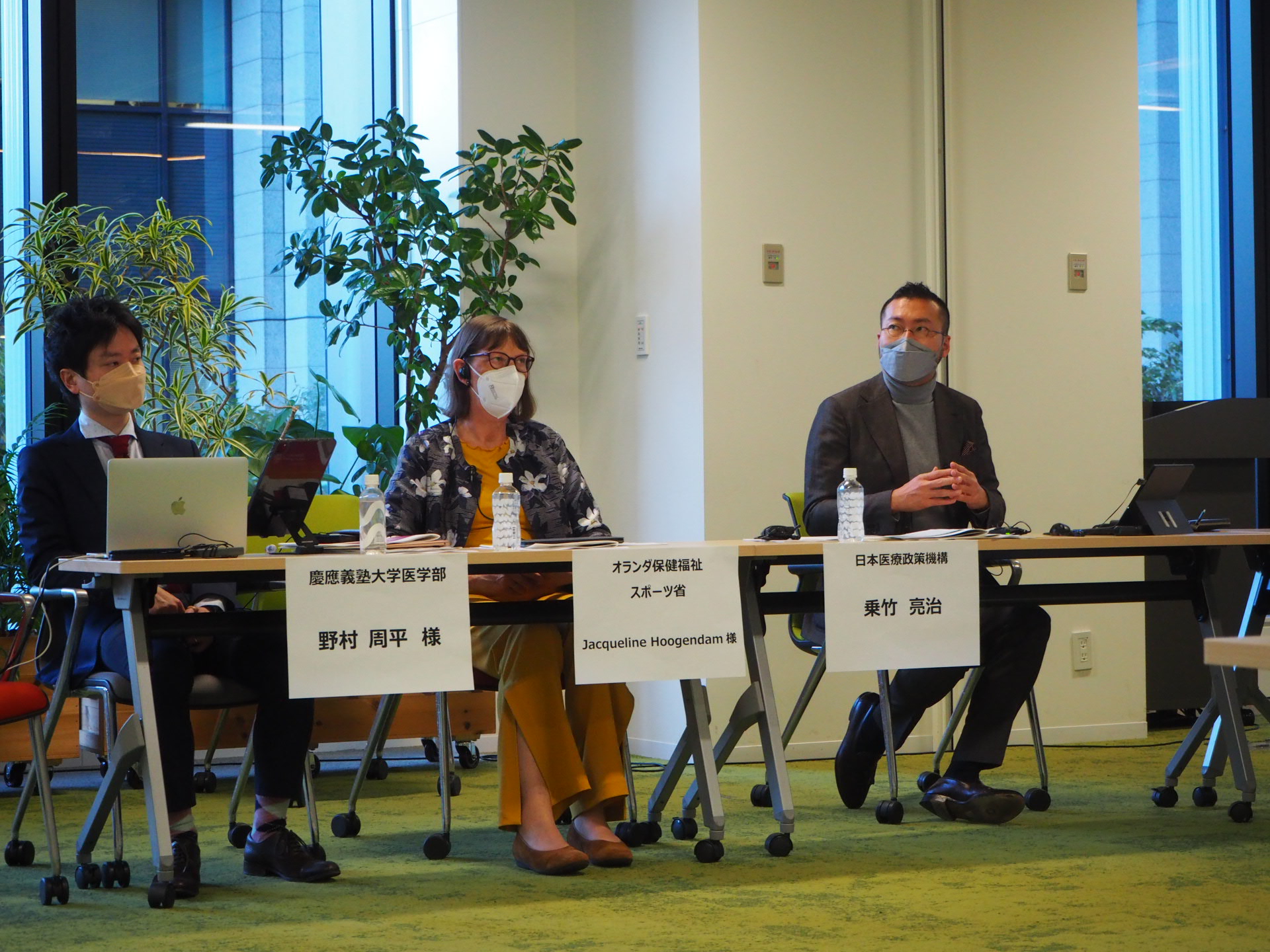
Global Health
2022.12.12
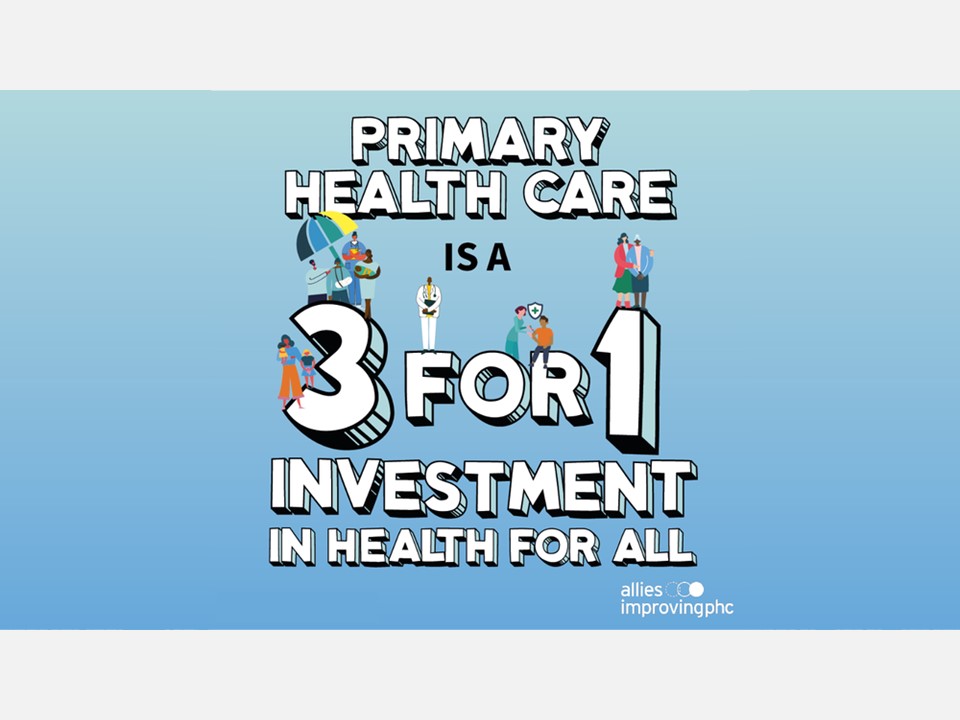
Joins Allies Improving PHC
Make This Time Different – Prioritize Primary Health Care as a 3-for-1 Investment towards Health for All
Primary Health Care is a 3-for-1 investment in universal health coverage (UHC), health security and better health & wellbeing – and it’s time leaders acted like it. That’s why for this year’s UHC Day, HGPI along with over 200 ally organizations signed the Allies Improving PHC open letter urging leaders to prioritize the importance of primary health care as an investment in health for all. The letter calls for leaders to take action in placing primary health care to the top of their agenda across the 2023 UN High-Level Meetings on UHC and Pandemic Prevention, Preparedness, and Response, and the 2023 midpoint of the Sustainable Development Goals.
2022.11.16

HGPI-Supported HIV/AIDS
Fast Track Cities Workshop Japan 2022
The International Association of Providers of AIDS Care (IAPAC), an international non-profit organization, and the Japanese Society for AIDS Research (JASR) co-hosted this workshop to introduce the Fast-Track Cities Initiative and stimulate discussion on HIV countermeasures in Japan. The conference aimed to promote discussion on HIV/AIDS countermeasures in Japan and formulate policy recommendations necessary to end the HIV/AIDS epidemic in Japan.
Planetary Health
2022.12.19
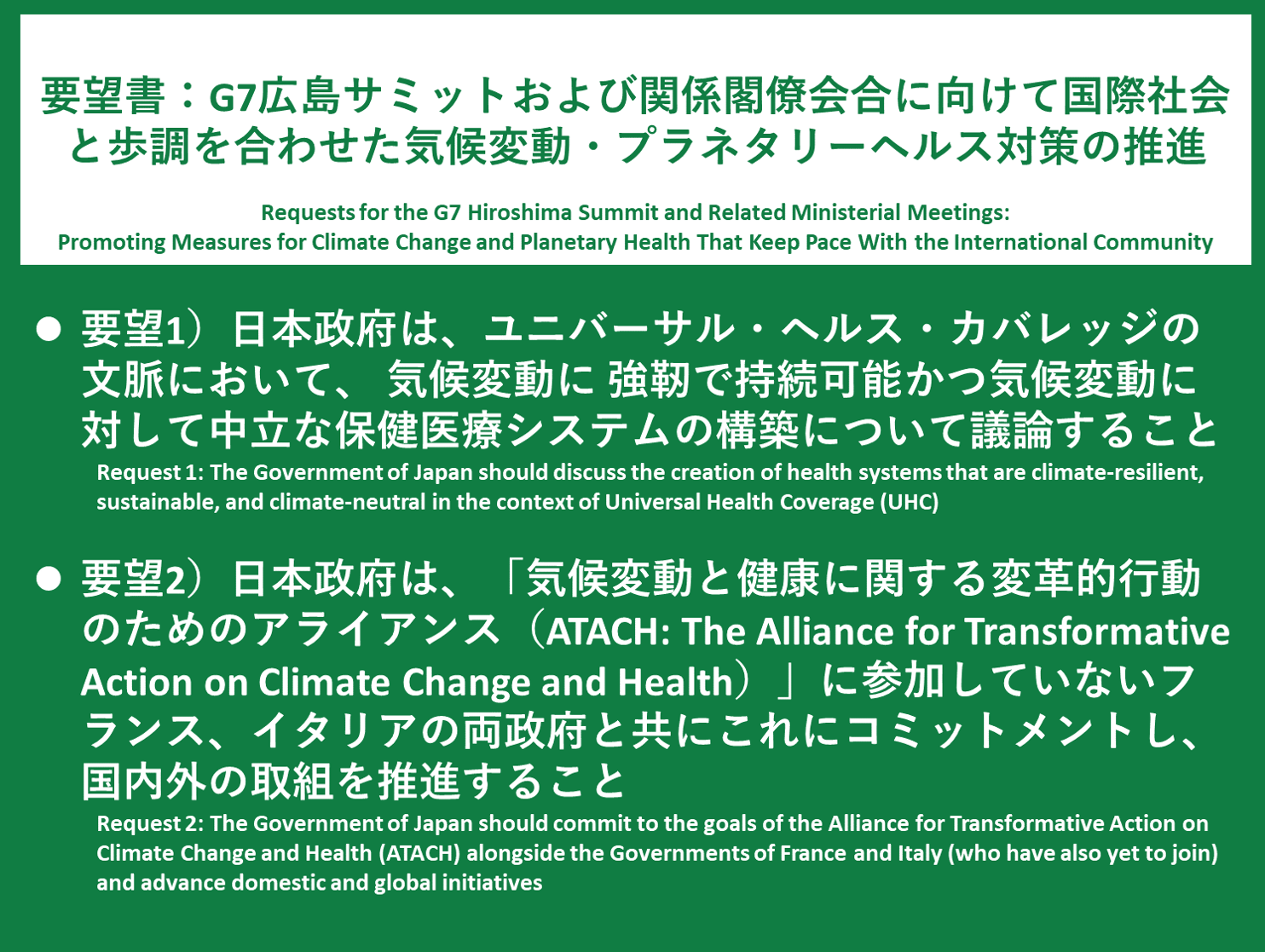
Policy Recommendations
Requests for the G7 Hiroshima Summit and Related Ministerial Meetings: Promoting Measures for Climate Change and Planetary Health That Keep Pace With the International Community
HGPI released recommendations for the G7 Hiroshima Summit.
2022.11.10
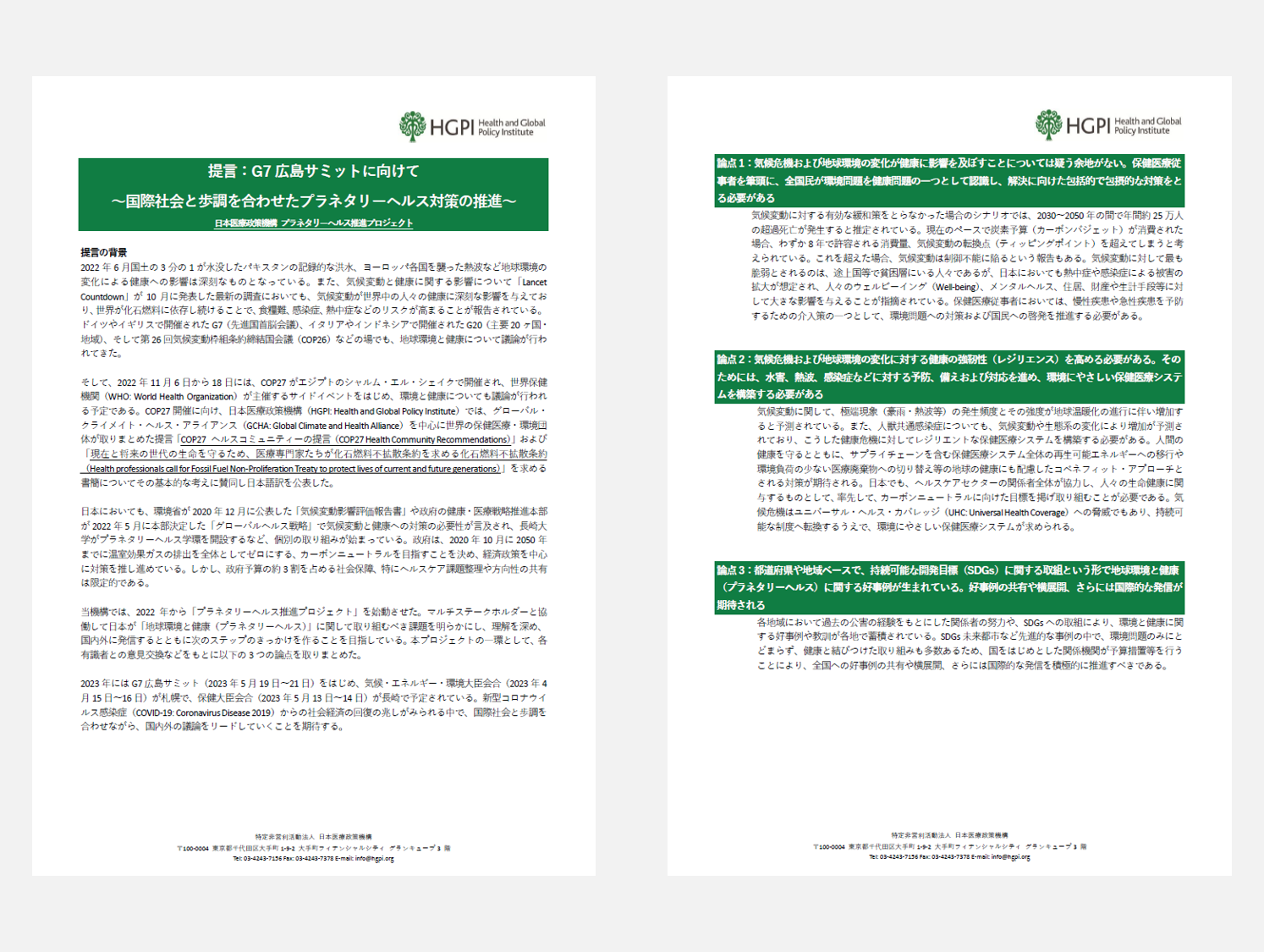
Policy Recommendations
Recommendations for the 2023 G7 Hiroshima Summit: Advance Measures for Planetary Health That is in Line with Global Progress
HGPI released recommendations for the G7 Hiroshima Summit. We hope that the Japanese government to lead the discussions in Japan and overseas while keeping in line with the global community, as signs of social and economic recovery from the COVID-19 (coronavirus disease 2019) pandemic begin to emerge.
- Discussion Point 1: There is no room for doubt that the climate crisis and climate change will impact health. Starting with health professionals, all citizens must recognize that environmental problems are health problems and take comprehensive and inclusive actions to address them.
Discussion Point 2: Health resilience to the climate crisis and climate change must be strengthened. We must promote prevention, preparedness, and response for events like floods, heat waves, and infectious disease outbreaks, as well as build environmentally friendly health systems.
Discussion Point 3: Good examples of initiatives for planetary health have emerged on the prefectural or regional basis in the form of actions taken for the Sustainable Development Goals (SDGs). Expectations are high for efforts to share said practices, to expand them horizontally, and to disseminate them on the global level.
2022.11.08
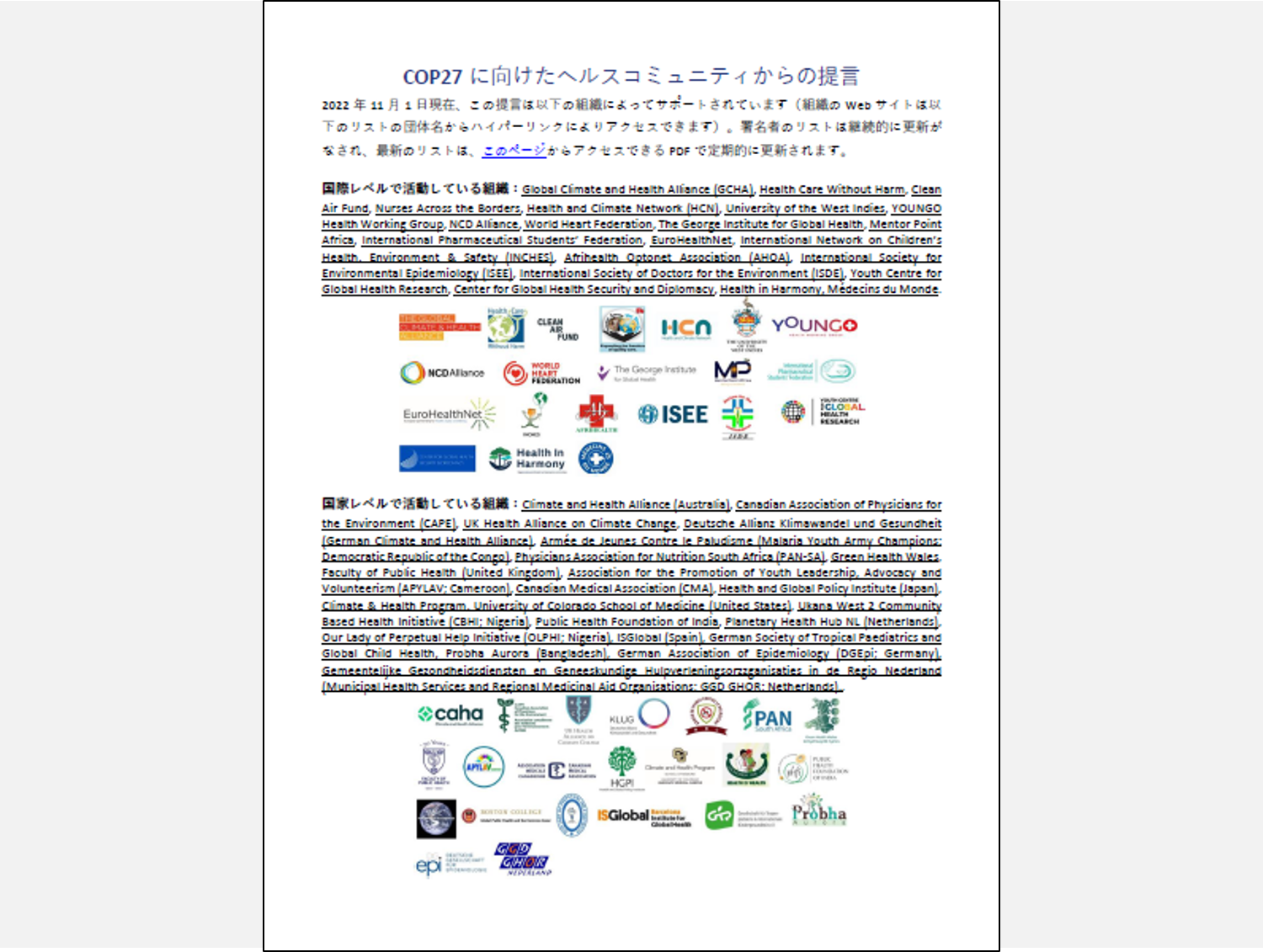
Joins Policy Recommendations
COP27 Health Community Policy Recommendations
Prior to the COP27 that has been held in Egypt from 6-18 November 2022, this policy recommendation was jointly developed on the themes of loss and damage, mitigation, adaptation, and finance by the lead of Global Climate and Health Alliance (GCHA) and other global health and environmental organizations.
2022.10.18

Joins Letter
Health professionals call for Fossil Fuel Non-Proliferation Treaty to protect lives of current and future generations
The letter demands governments to lay out a legally binding global plan to phase out fossil fuel use, signed by World Health Organization (WHO), GCHA, and around 200 health and medical care organizations.
Health Policy Academy
The 11th Semester of Health Policy Academy (HPA)
The 11th semester of HPA will be held over the next six months. It aims to provide participants with opportunities to learn basic knowledge and acquire skills for health policy through lectures by opinion leaders and interactive multi-stakeholder discussions among participants.
2022.11.24
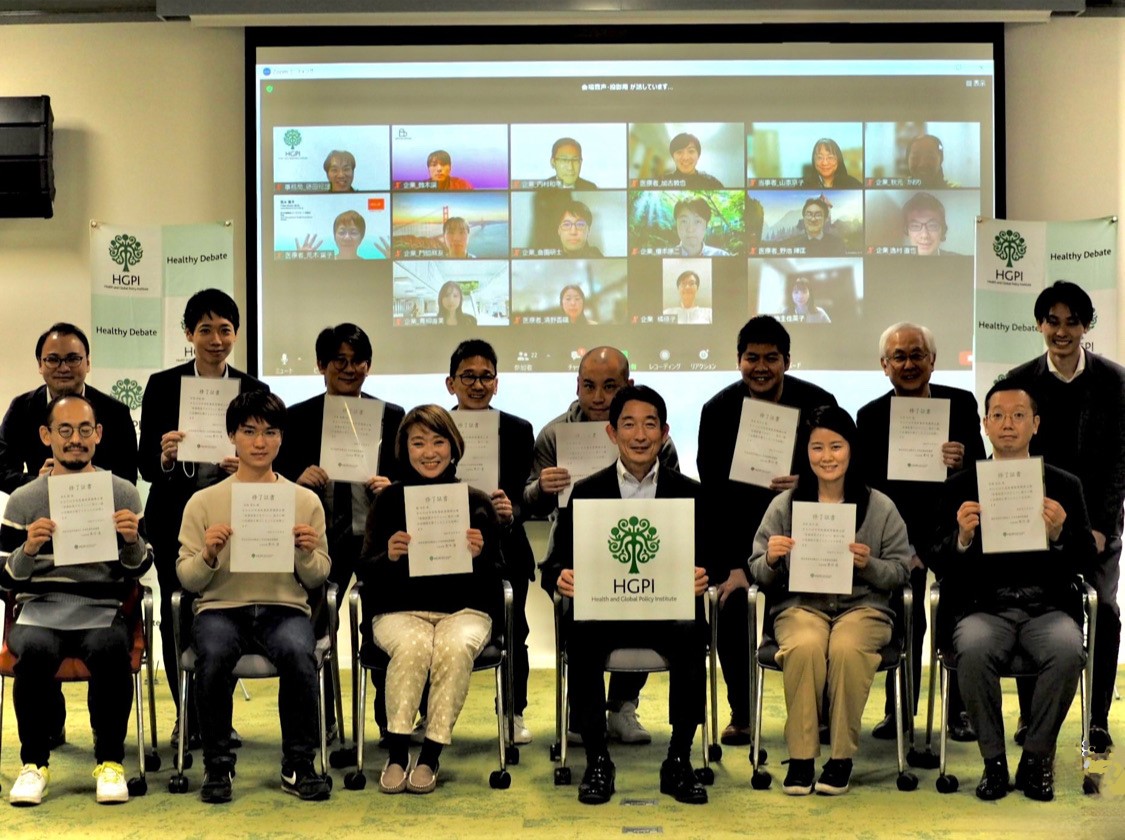
Lecture 7
Predicting the Future of Healthcare
While referring to real policy proposals and similar documents, Professor Onozaki shared his know-how regarding health policy formulation in the context of the relationships of various stakeholders.
2022.11.10
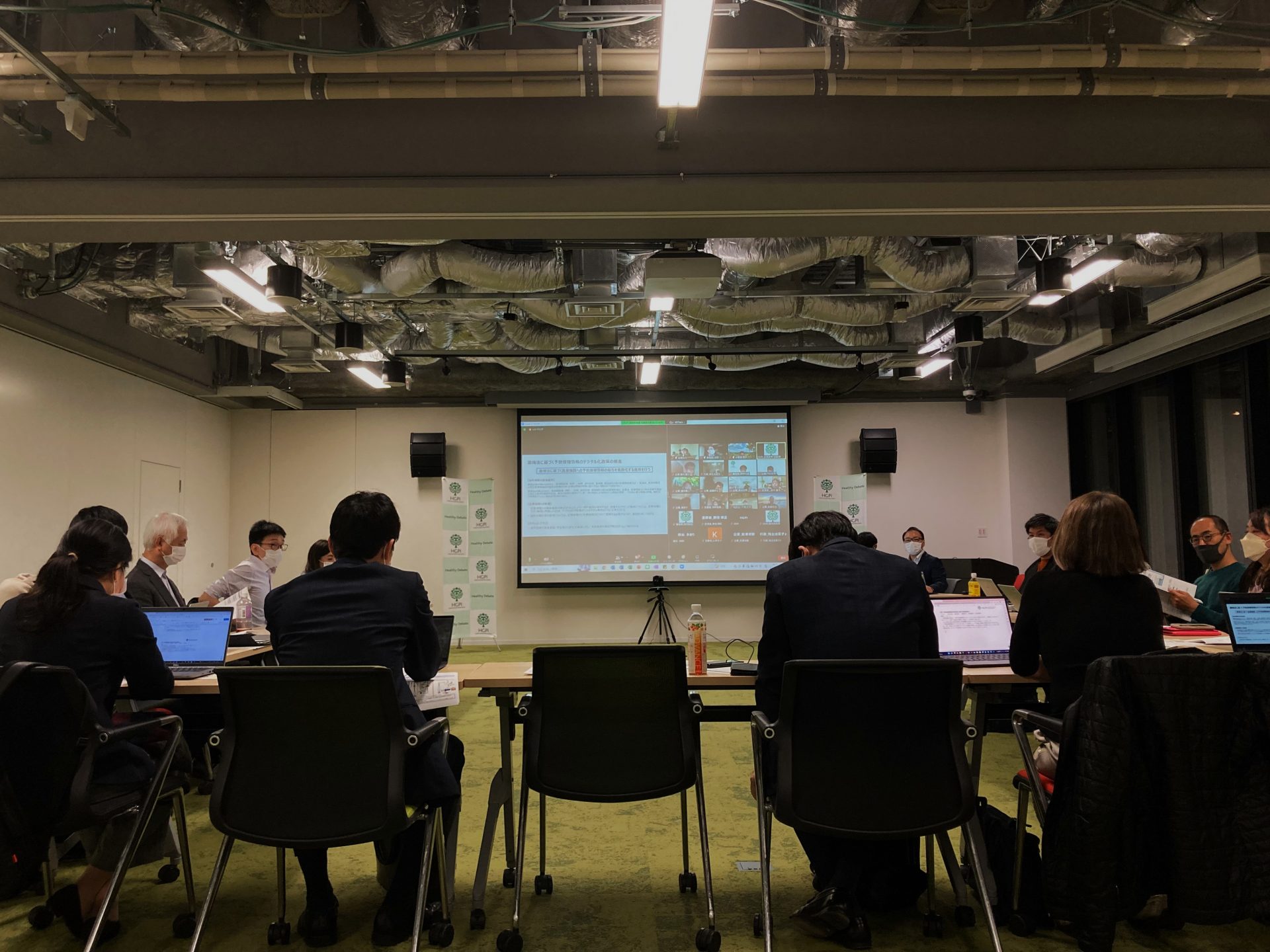
Group Presentation Session
Our Recommendation for Health Policy
Presentations were put together by each group through group discussion prior to the session. In the discussion following each presentation, students from diverse backgrounds actively contributed, and it was a lively exchange of opinions that transcended industry and regional barriers.
2022.10.20
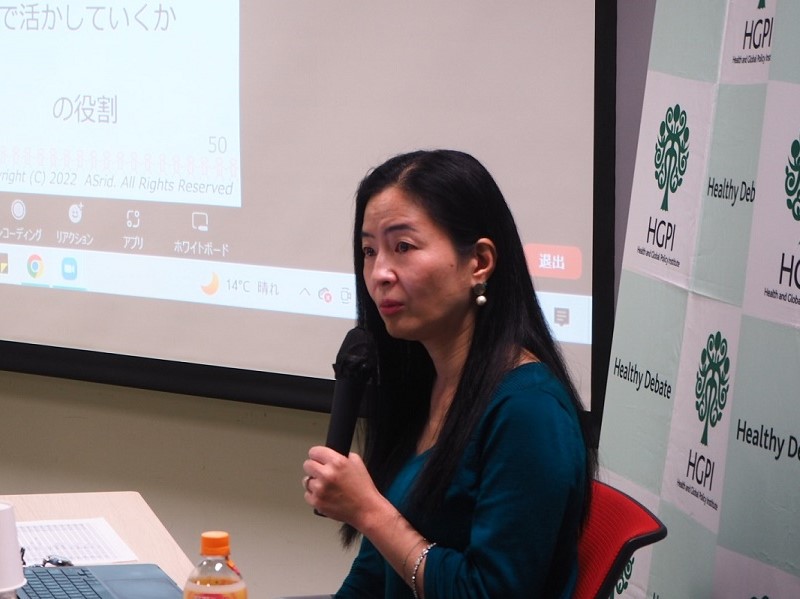
Lecture 6
Community Healthcare in Japan
Ms. Yukiko Nishimura (President, Advocacy Service for Rare and Intractable Diseases (NPO ASrid)) explained research and advocacy for social issues, with introducing many initiatives of ASrid in the field of rare diseases.
2022.10.05
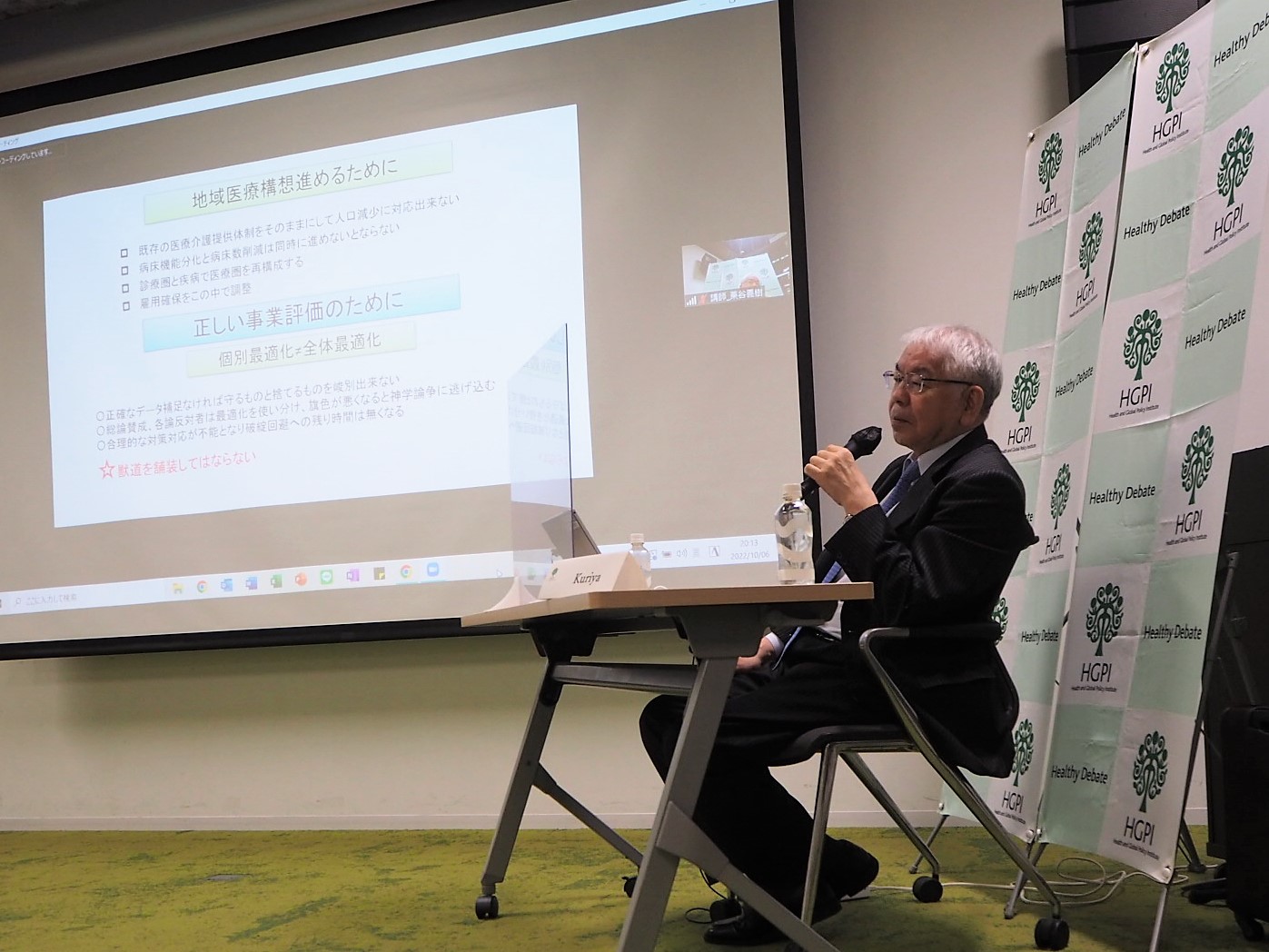
Lecture 5
Community Healthcare in Japan
Dr. Yoshiki Kuriya (Representative Director, Nihonkai Healthcare Net (Regional Medical Coordination Promotion Corporation)) explained the origin and history of Nihonkai Healthcare Net. He introduced his initiative to optimize healthcare delivery in the region introducing various indicator based on data including financial circumstance and trend of number of patients among the group facilities. As a takehome message, he summarized the issues in health policy that Japan needs to overcome.
HGPI Seminar
2022.12.16
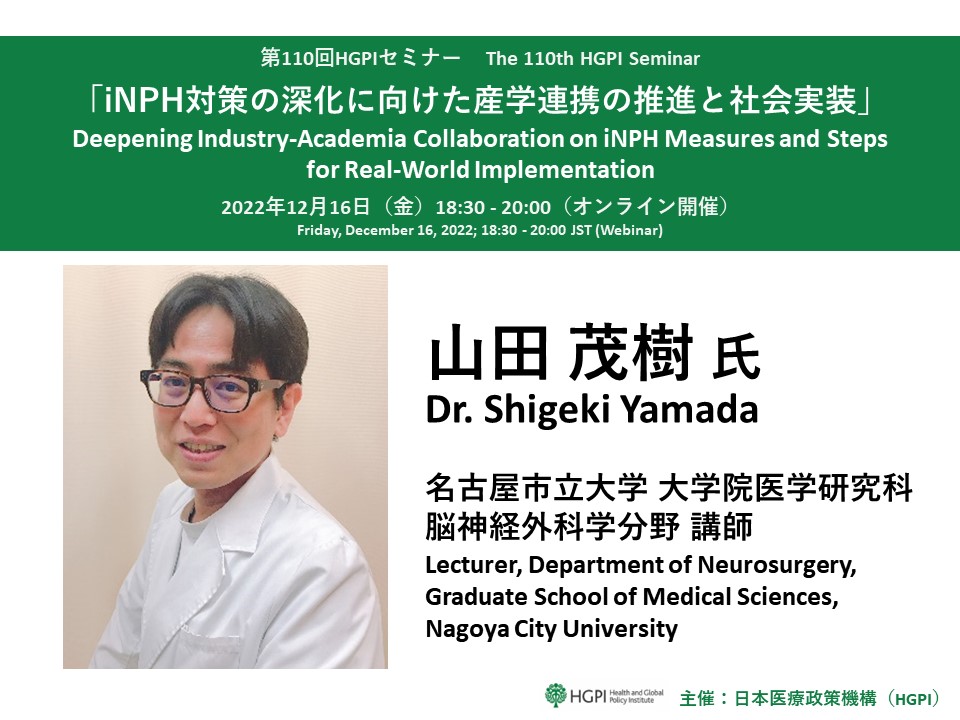
The 110th HGPI Seminar
Deepening Industry-Academia Collaboration on iNPH Measures and Steps for Real-World Implementation
We hosted Dr. Shigeki Yamada of Nagoya City University Graduate School for a lecture on the current situation surrounding idiopathic Normal Pressure Hydrocephalus (iNPH), clinical studies involving industry-academia collaboration on AI-based automatic image recognition technology and gait disturbance detection, and issues and future prospects for implementing the use of such technology in society.
2022.12.09
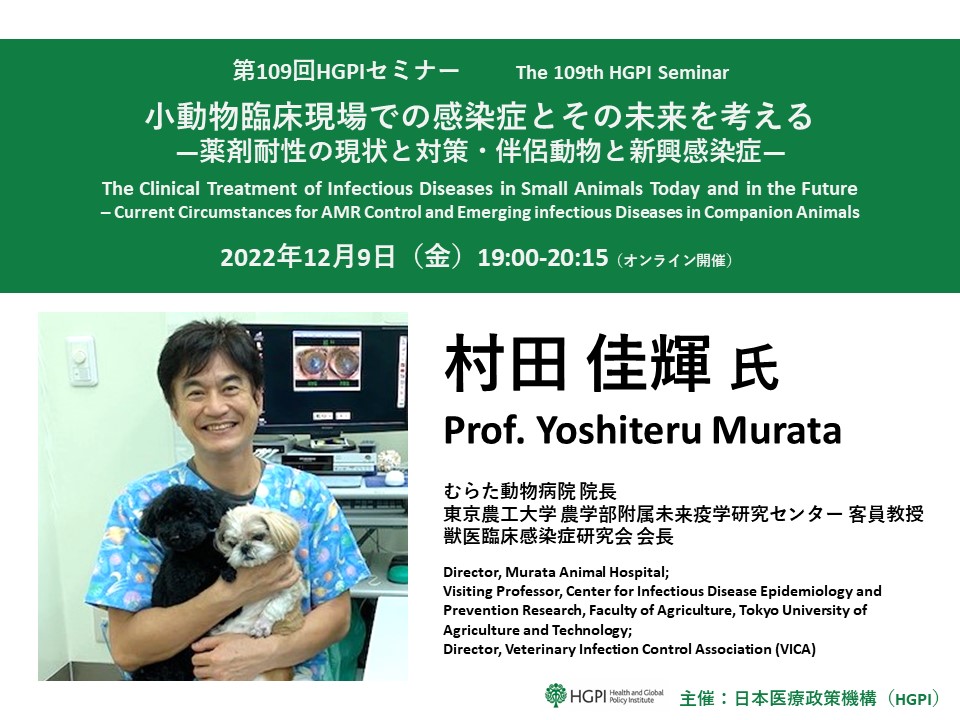
The 109th HGPI Seminar
The Clinical Treatment of Infectious Diseases in Small Animals Today and in the Future – Current Circumstances for AMR Control and Emerging Infectious Diseases in Companion Animals
We hosted Professor Yoshiteru Murata, who is Director of Murata Animal Hospital and the Veterinary Infection Control Association (VICA) as well as a Visiting Professor at the Center for Infectious Disease Epidemiology and Prevention Research of the Tokyo University of Agriculture and Technology Faculty of Agriculture. Professor Murata gave a lecture on the theme of combating antimicrobial resistance (AMR) in small animals during which he reviewed his real-world clinical experiences and research to examine current circumstances in clinical settings and measures to control zoonotic infections based on the One Health approach.
2022.12.05
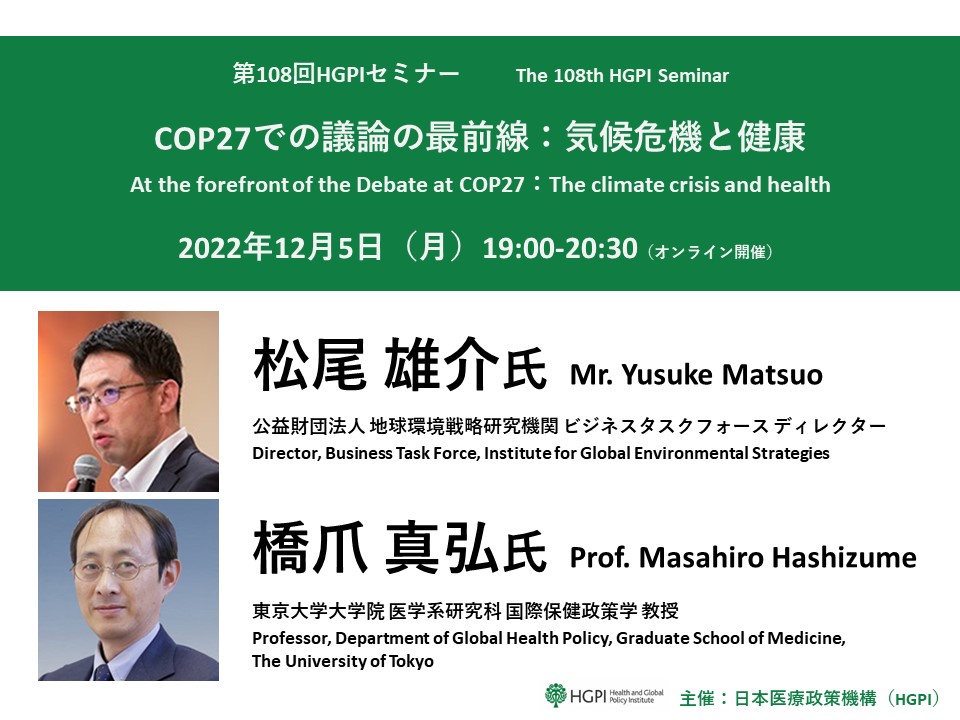
The 108th HGPI Seminar
At the Forefront of the Debate at COP27: The Climate Crisis and Health
We hosted Mr. Yusuke Matsuo, Director of the Institute for Global Environmental Strategies (IGES) Business Task Force, and Professor Masahiro Hashizume, who serves at the Department of Global Health Policy of the Graduate School of Medicine at the University of Tokyo. Together, they talked about discussions held at the frontline of planetary health and health at COP27 which was held in Sharm El Sheikh, Egypt from November 7 to 18, 2022.
Lectures and Media Coverage
HGPI’s projects have been covered by various media outlets both inside and outside of Japan.
2022.12.03
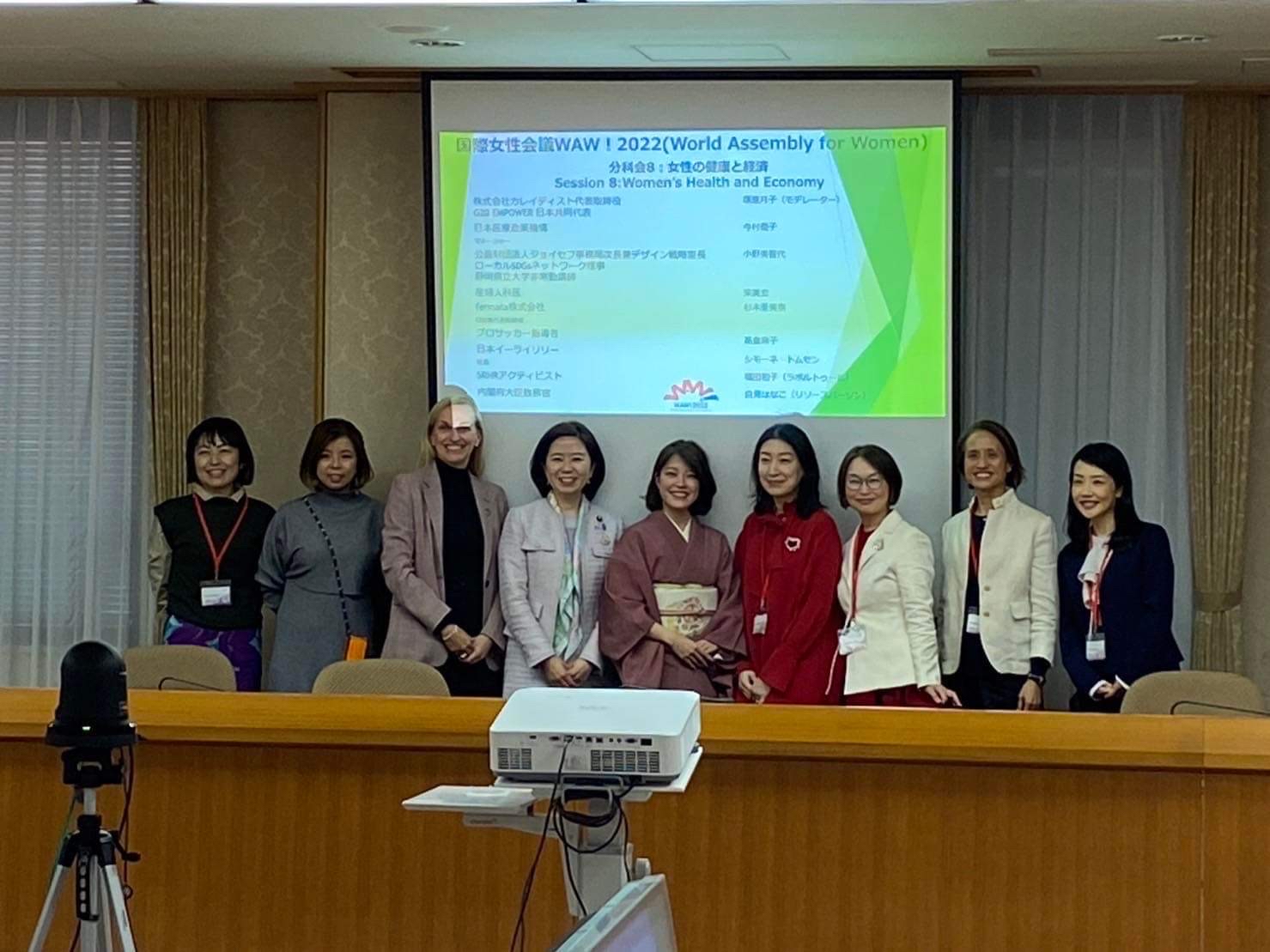 Ministry of Foreign Affairs of Japan “The World Assembly for Women: WAW! 2022 – Mainstreaming Gender into a New Form of Capitalism”
Ministry of Foreign Affairs of Japan “The World Assembly for Women: WAW! 2022 – Mainstreaming Gender into a New Form of Capitalism”
Women’s health and Economy
HGPI Manager Ms. Yuko Imamura gave a lecture at the World Assembly for Women: WAW! 2022.
Ms. Imamura participated in Session 8: Women’s health and Economy. While referring to the results of past studies conducted by HGPI such as the “Survey on Health Promotion and Working Women 2018” and “The Public Opinion Survey on Child-Rearing in Modern Japan,” she offered recommendations on reinforcing support for better health literacy in women’s health, developing systems for better access to gynecological care, and utilizing FemTech for the early detection of health issues.
2022.12.03
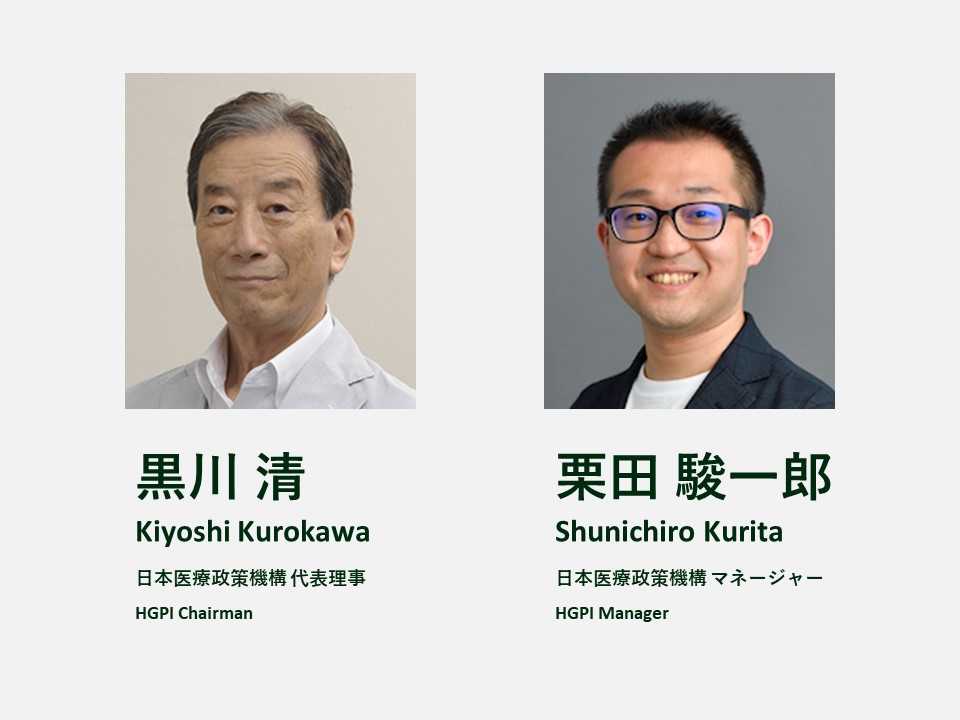 The Nikkei Dementia Symposium 2022 – Necessary Steps for Japan to Demonstrate Leadership in International Society
The Nikkei Dementia Symposium 2022 – Necessary Steps for Japan to Demonstrate Leadership in International Society
Expectations for Leadership from Japan for the 2023 G7 Summit
HGPI Chairman Dr. Kiyoshi Kurokawa and Manager Mr. Shunichiro Kurita spoke at “The Nikkei Dementia Symposium 2022 – Necessary Steps for Japan to Demonstrate Leadership in International Society.”
2022.11.19
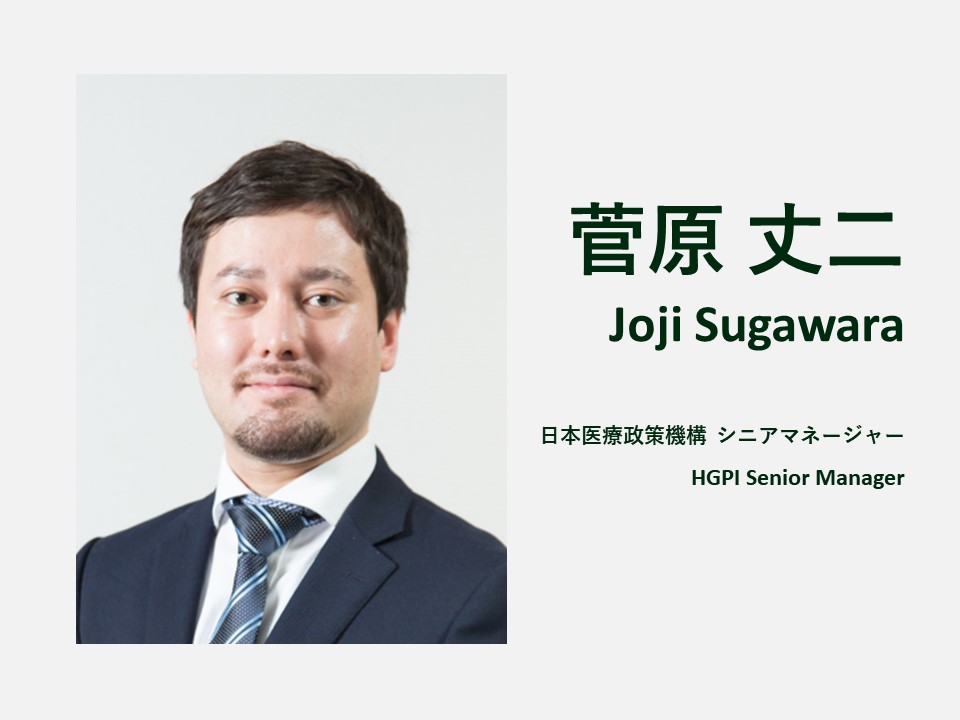
Graduate School of Medicine/Division of Environmental Medicine and Population Science/Department of Social and Environmental Medicine, Osaka University “Introduction To Global Health”
Partnership in Global Health: Perspective from a Think-tank
Mr. Joji Sugawara, HGPI Senior Manager, provided a lecture on the “Partnership in Global Health: Perspective from a Think-tank”.
2022.11.15-16
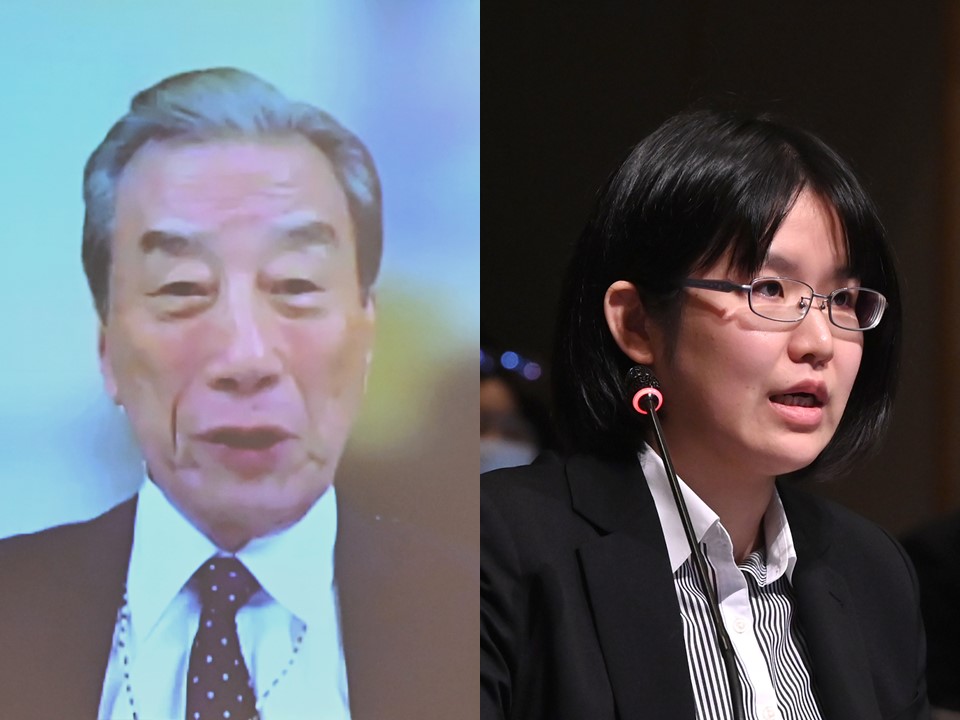
The 9th NIKKEI FT Communicable Diseases Conference ― Tokyo Communicable Diseases Statement
People’s engagement in pandemic
Japan’s Contribution to UHC – Toward G7 in Hiroshima
On November 15-16, 2022, HGPI Chairman Dr. Kiyoshi Kurokawa and Manager Ms. Yui Kohno spoke at various programs throughout both days of the 9th NIKKEI FT Communicable Diseases Conference, organized by Nikkei Inc. and co-sponsored by Financial Times.
2022.11.11
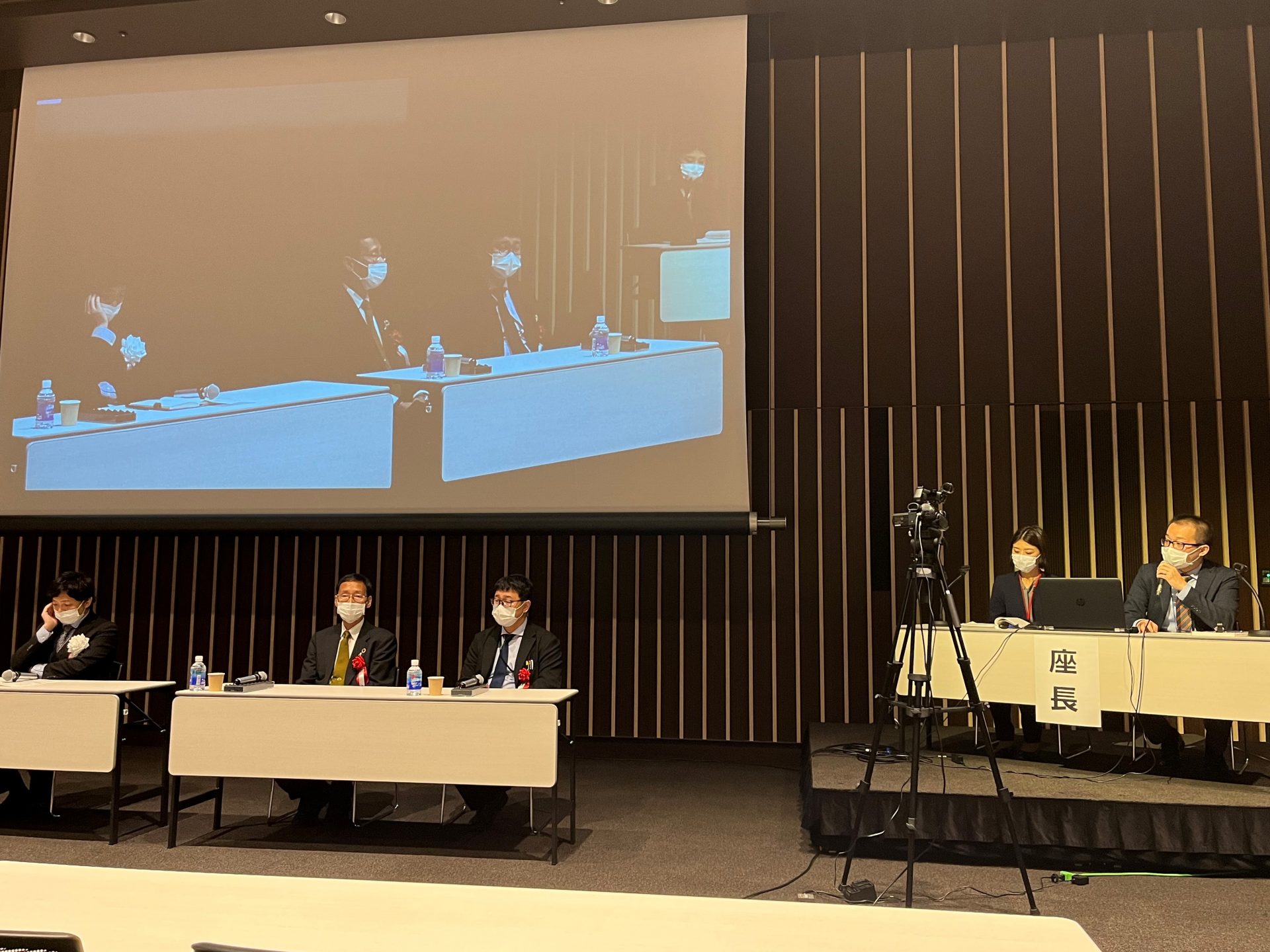
The 22nd Annual Convention of the Japanese Association for Cognitive Therapy
Mental Health Administration and Cognitive Behavior Therapy – From the Past to the Future
HGPI Manager Mr. Shunichiro Kurita took part in the 22nd Annual Convention of the Japanese Association for Cognitive Therapy, where he served as moderator for a special session titled, “Mental Health Administration and Cognitive Behavior Therapy – From the Past to the Future.”
In this session, lectures were given on the current circumstances surrounding policies for mental healthcare in Japan that reviewed past developments since mental healthcare was added to the medical service fee schedule and explored future developments in administration for mental health and cognitive behavior therapy. A discussion was also held.
2022.11.08
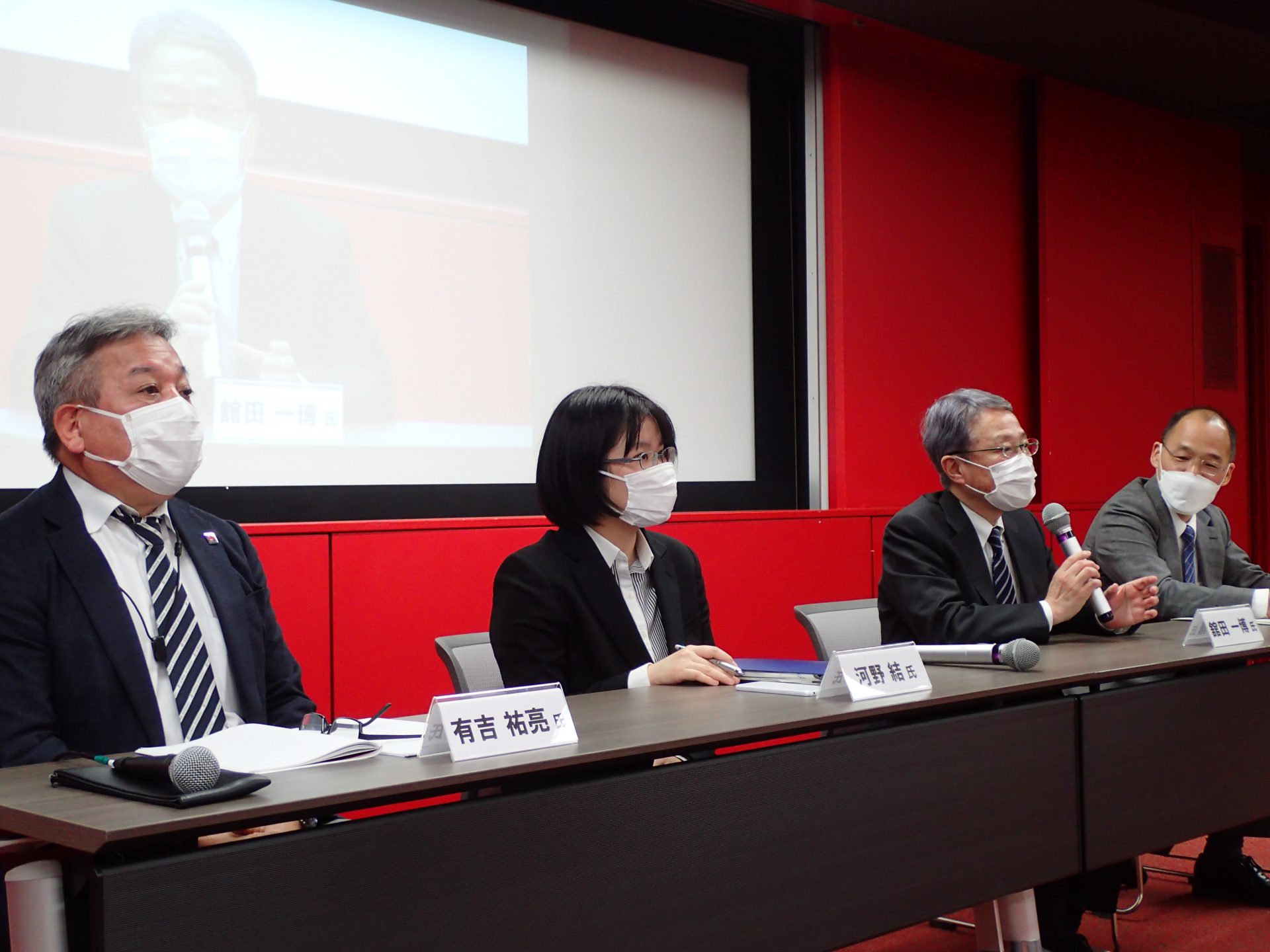
The Pharmaceutical Manufacturers Association of Japan Media Forum “Preparing for Antimicrobial Resistance (AMR) Awareness Month”
Efforts of AMR Alliance Japan
HGPI Manager Ms. Yui Kohno gave a lecture titled, “Efforts of AMR Alliance Japan” at the Pharmaceutical Manufacturers Association of Japan’s Media Forum titled, “Preparing for Antimicrobial Resistance (AMR) Awareness Month.” The forum was organized by the International Committee of the Japan Pharmaceutical Manufacturers Association (JPMA) in cooperation with AMR Alliance Japan. The lecture focused on the efforts of AMR Alliance Japan undertaken for seven main themes and discussed the importance of awareness-raising activities and public collaboration.
2022.11.04
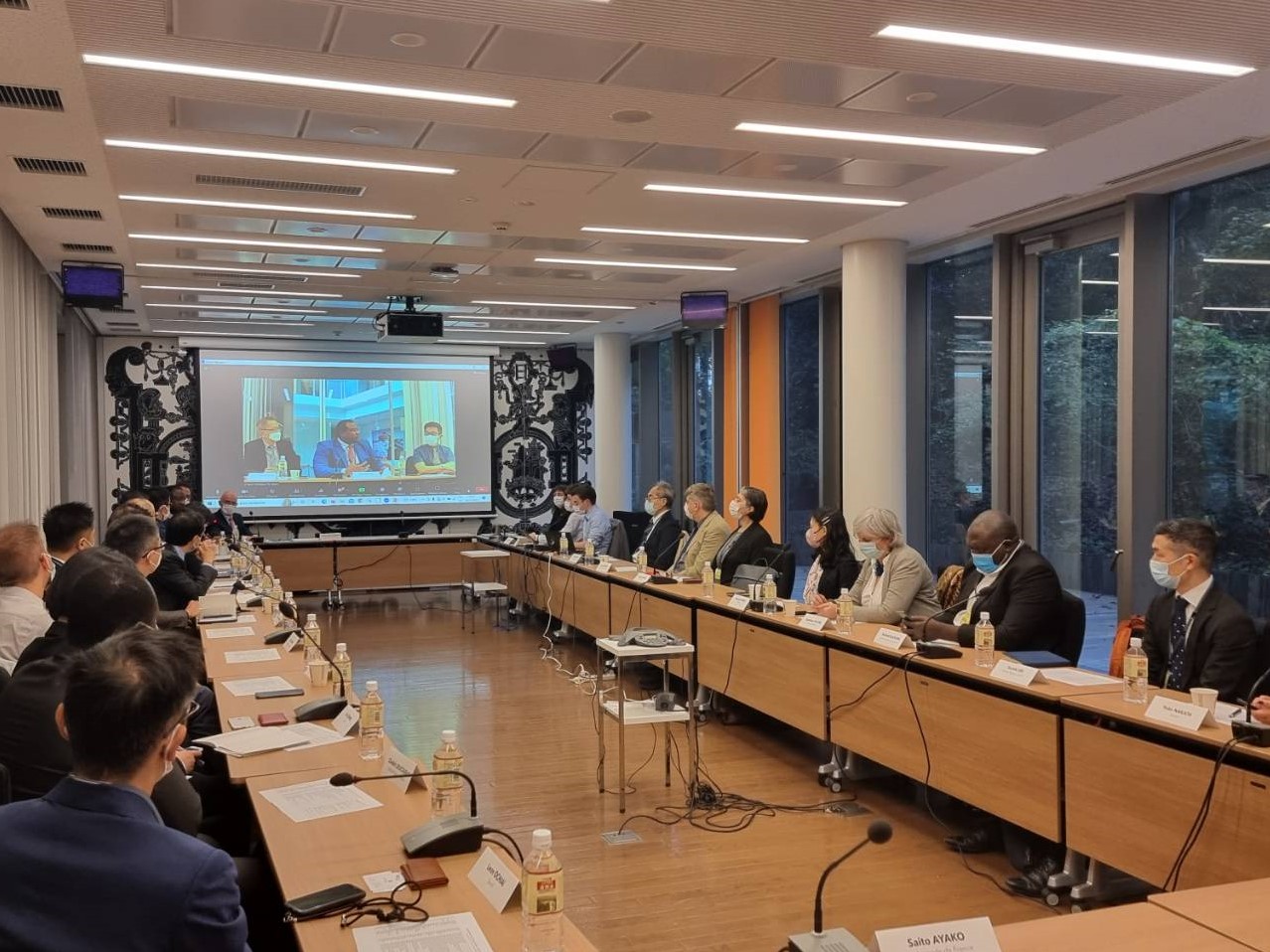
Pasteur Japan Symposium 2022 hosted by the French Embassy “France Japan Co-operation on Health in Africa and Indo-pacific Regions”
HGPI CEO and board member Mr. Ryoji Noritake and Manager Ms. Yui Kohno participated in a conference hosted by the French Embassy titled, “France Japan Co-operation on Health in Africa and Indo-pacific Regions.”
This conference brought together stakeholders from Japan and France to promote international cooperation in the area of international health in Africa and the Indo-pacific region. While mentioning the importance of planetary health and public involvement in international cooperation, Mr. Noritake discussed strategies to contribute to international health such as multidisciplinary and multi-stakeholder countermeasures against infectious diseases.
2022.10.23
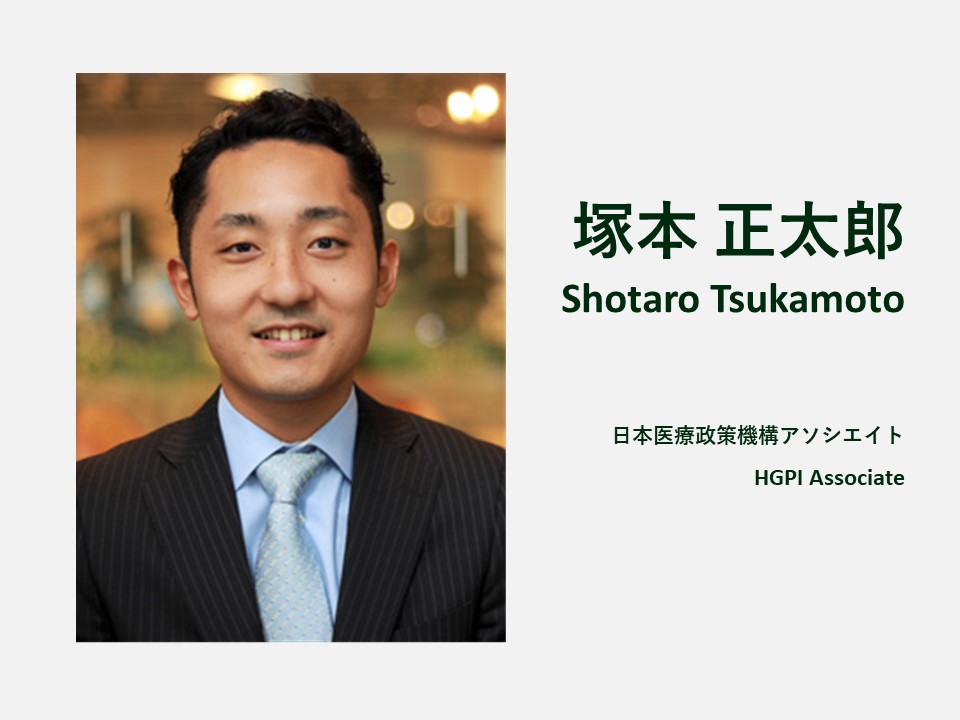
An online workshop hosted by the PPeCC “Let’s Build the Healthcare of the Future Together With Heart Project
How Can We Convey the Voices of Those Most Affected?
HGPI) Associate Mr. Shotaro Tsukamoto gave a lecture at an online workshop hosted by the “Let’s Build the Healthcare of the Future Together With Heart Project,” which is operated by Power to the People with Chronic Conditions, or PPeCC.
In his lecture, titled “How Can We Convey the Voices of Those Most Affected?” Mr. Tsukamoto explained the need for Patient and Public Involvement (PPI) and PPI methods. While referring to policy recommendation activities undertaken as part of HGPI’s Platform Project for Patient and Public Involvement and Cardiovascular Disease Control Promotion Project, Mr. Tsukamoto introduced specific methods for patients and affected parties to participate in the policy decision-making process and points of note to keep in mind when doing so.
Lectures and Media Coverage
Advocacy Activities to Encourage the Adoption of the Recommendations in Our Policy Proposals
HGPI composes and publishes reports and policy proposals for each of its projects. HGPI also makes efforts to encourage the implementation of the recommendations contained in those publications through advocacy activities targeting the government and Diet. Those efforts include providing explanations on the content of each report and proposal to representatives from relevant departments with the local and national government or to Diet members and local assembly members on an individual basis. In addition to cooperating closely with parties relevant to each project from the local and national government, HGPI also functions as a hub that creates links within the community of experts in each field when creating content for Diet member study sessions or when drafting bills. We engage in these cooperative efforts with a shared intent of encouraging the implementation of concrete policies based on our recommendations. In the past, recommendations included in HGPI’s reports and policy proposals have been reflected in policies after having been cited in presentations made by various groups within the government, including nonpartisan Diet member groups and project teams, or in proposals composed by those groups.
Providing Professional Expertise
Serving on Government Committees and Global Organizations
Senior members of HGPI have held various titles on government committees and in global health societies. Some of those titles are listed below.
- Kiyoshi Kurokawa: Member, World Dementia Council; Healthcare Policy Advisor, Cabinet Secretariat; Chairman, Council on the Future of Tokyo in a Super-Aged Society; Chairman, Cabinet Office’s AI Advisory Board
- Kohei Onozaki: Health Policy Advisor, Ministry of Health, Labour and Welfare; Social Security Team, Administrative Reform Conference, Cabinet Secretariat
- Ryozo Nagai: Member, Ministry of Health, Labour, and Welfare Social Security Council; Provisional Member, Council for Science and Technology, Ministry of Education, Culture, Sports, Science and Technology; Member, Cabinet Office’s AI Advisory Board
- Ryoji Noritake: Committee Member, Council on the Future of Tokyo in a Super-Aged Society
- Satoko Hotta: Member, Caregiver Fee Subcommittee and Welfare Division, Social Security Council, Ministry of Health, Labour and Welfare; Expert Committee Member, Policy Evaluation Council, Ministry of Internal Affairs and Communications
- Shinsuke Muto:Information Policy Advisor, Ministry of Health, Labour and Welfare



